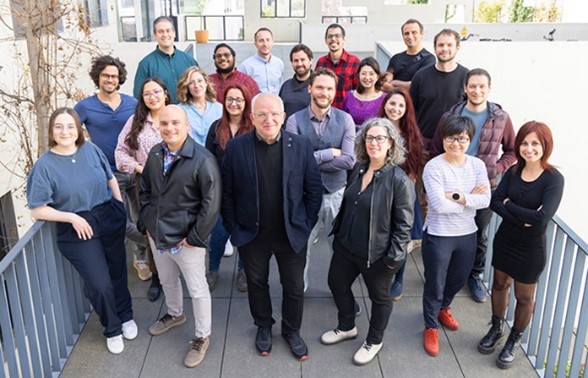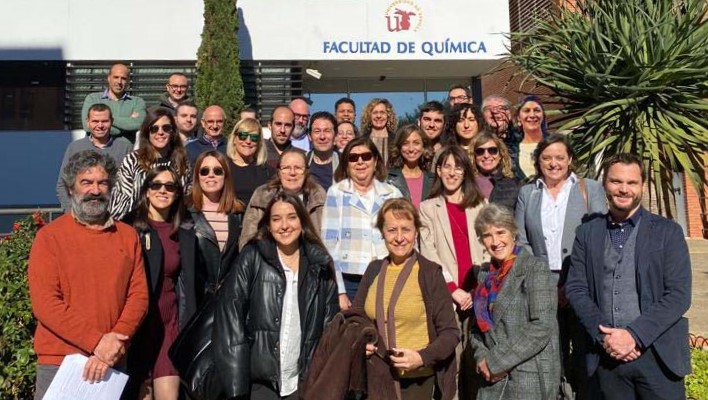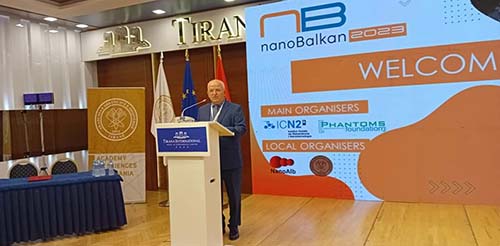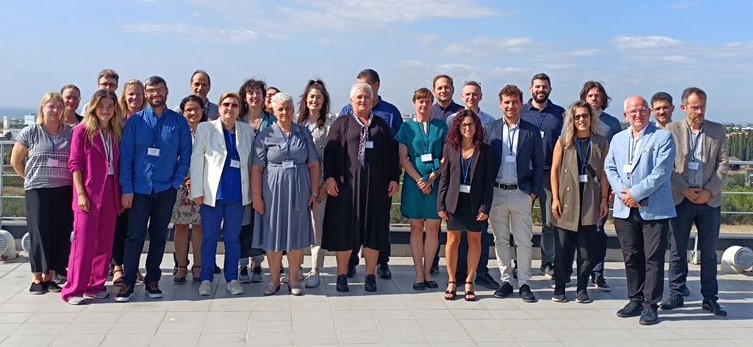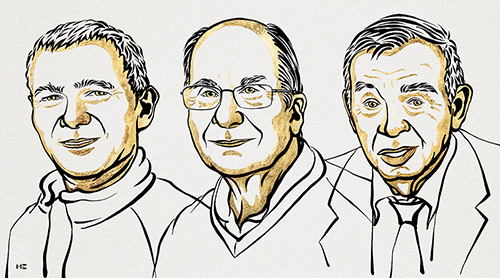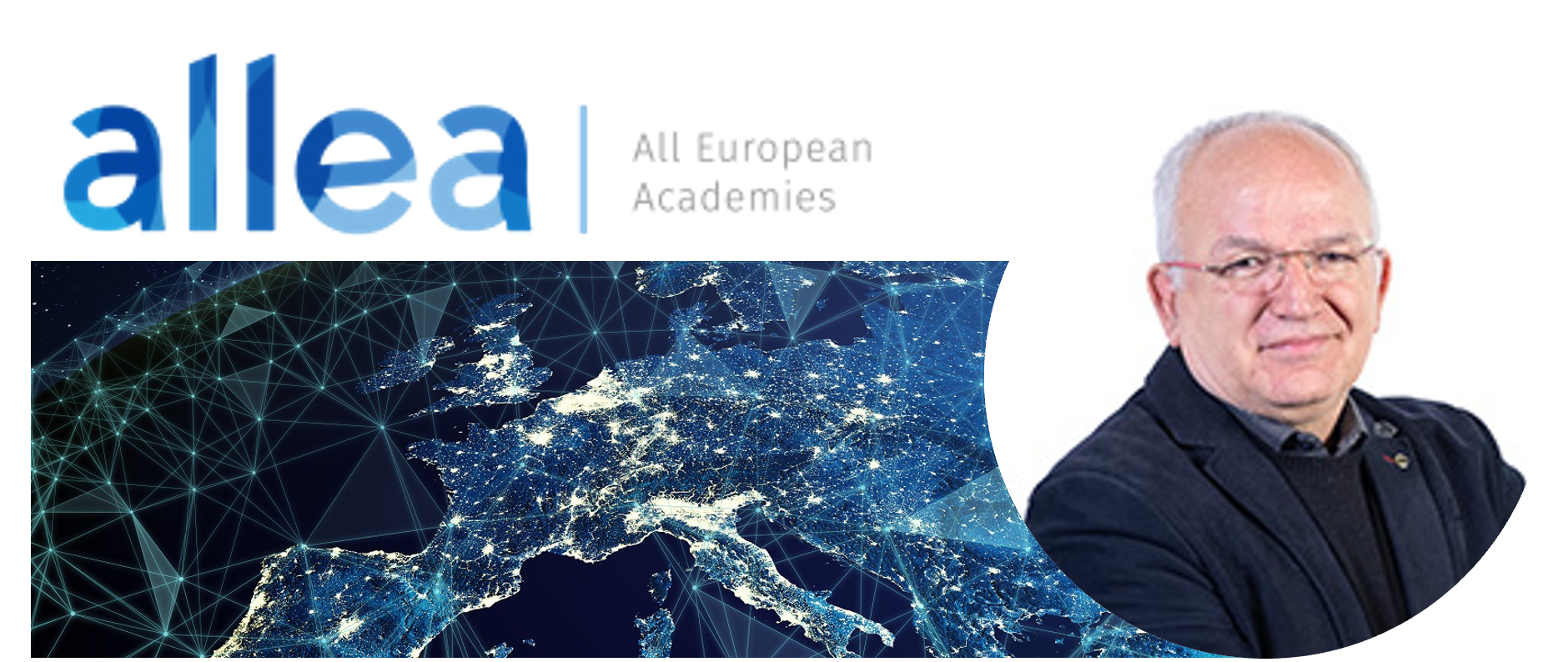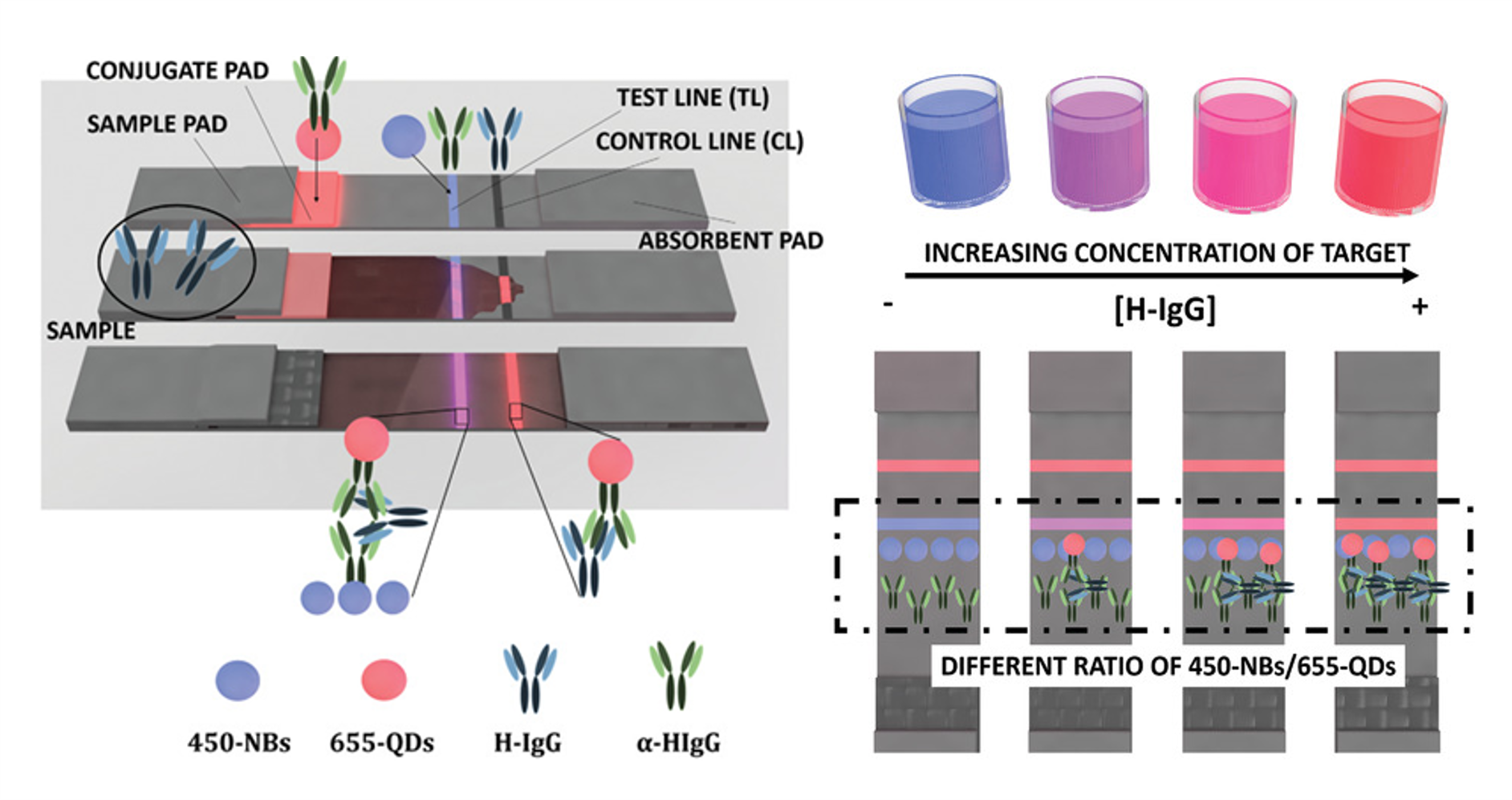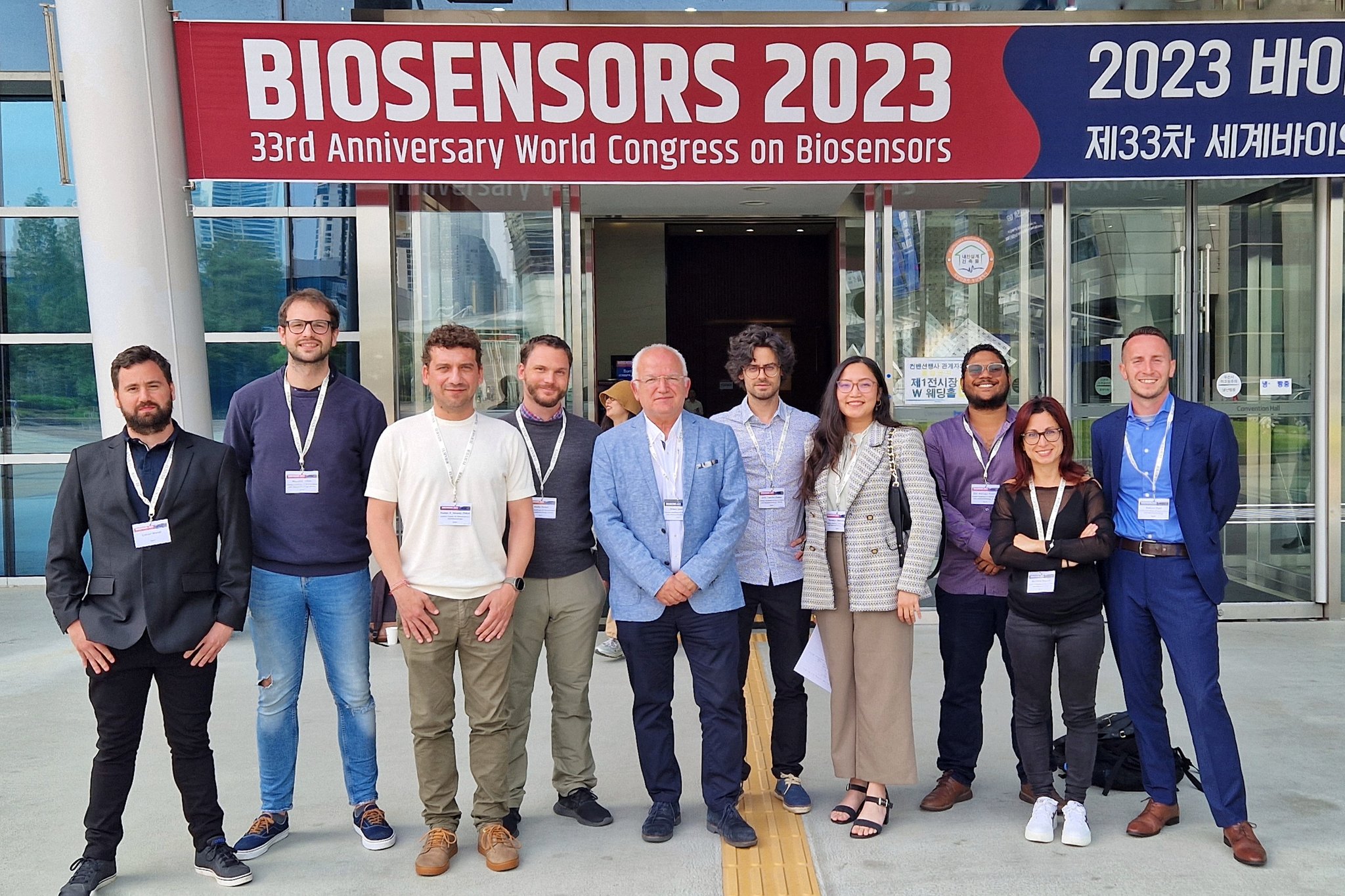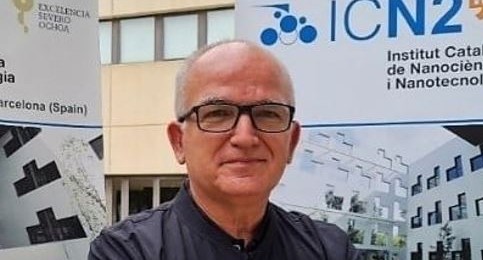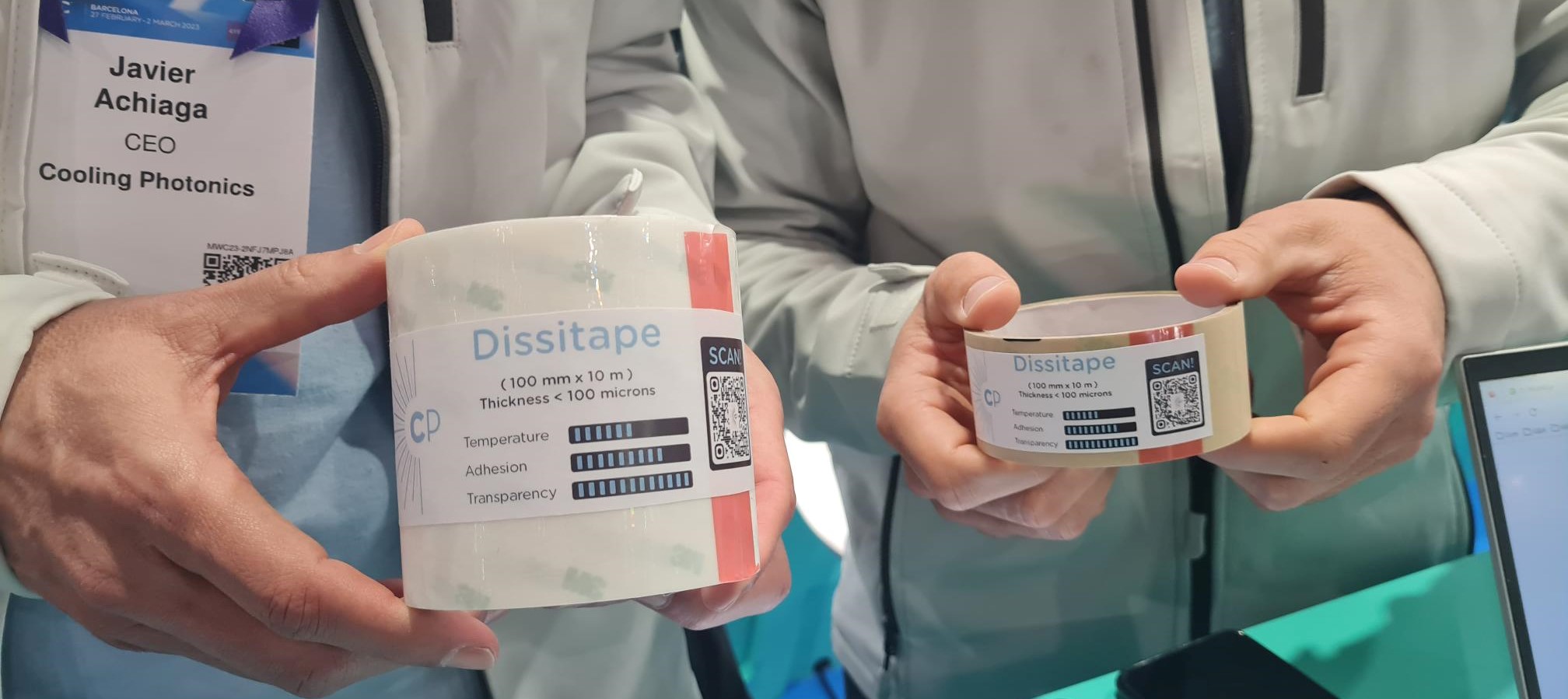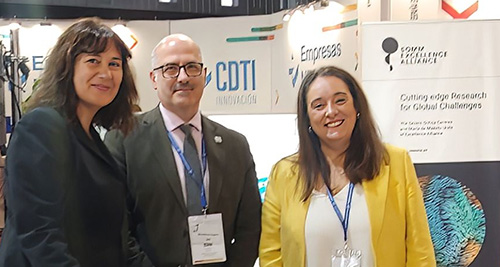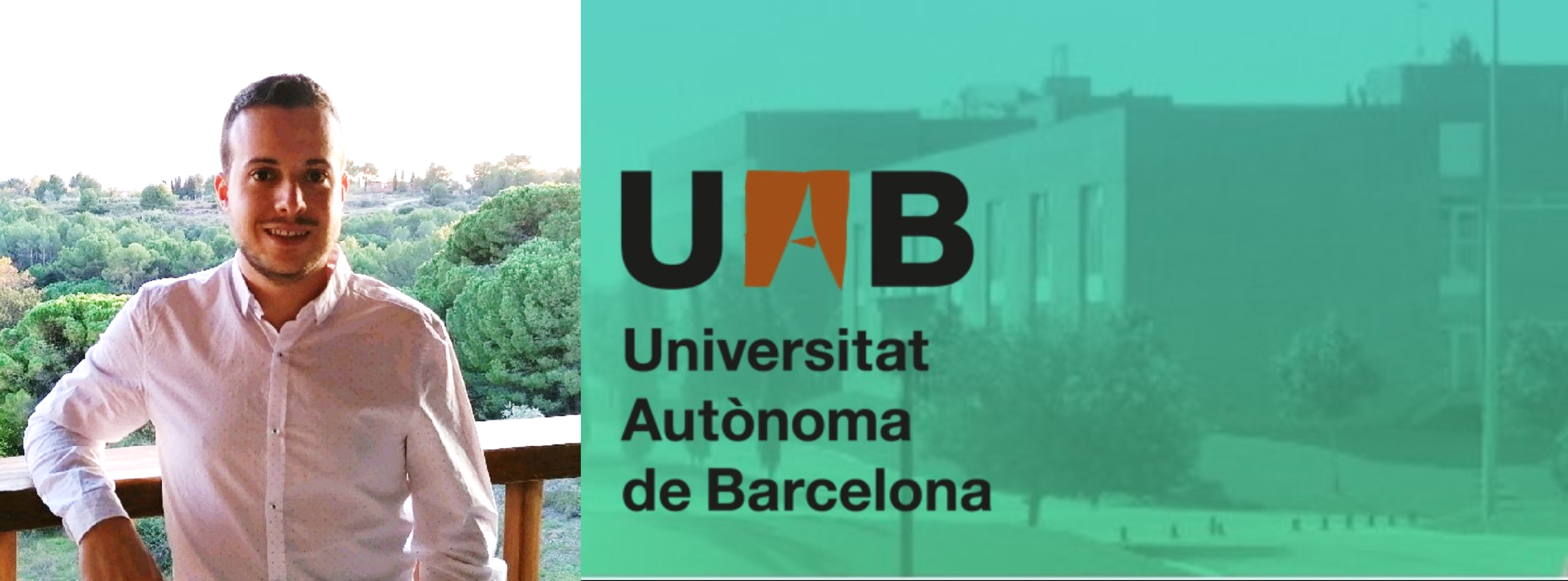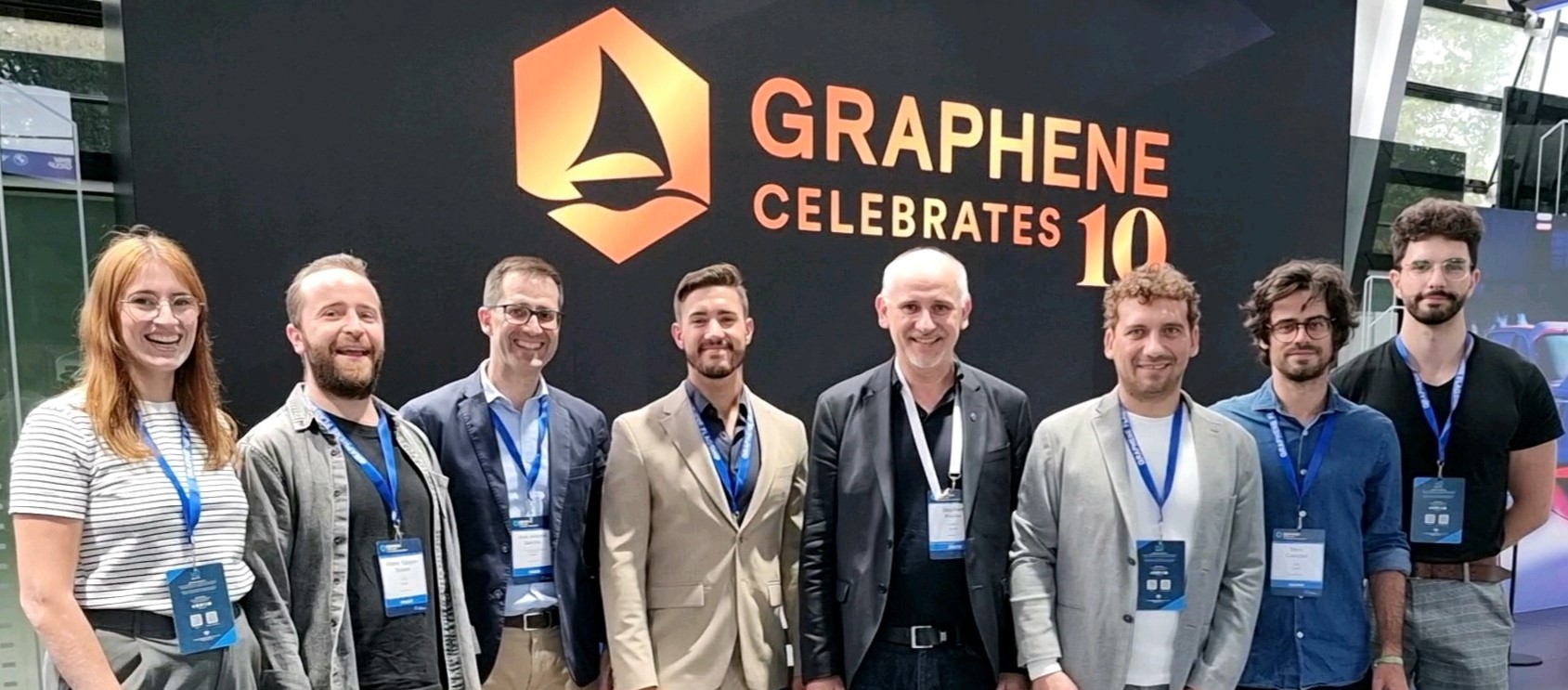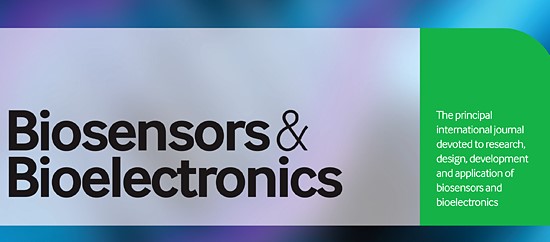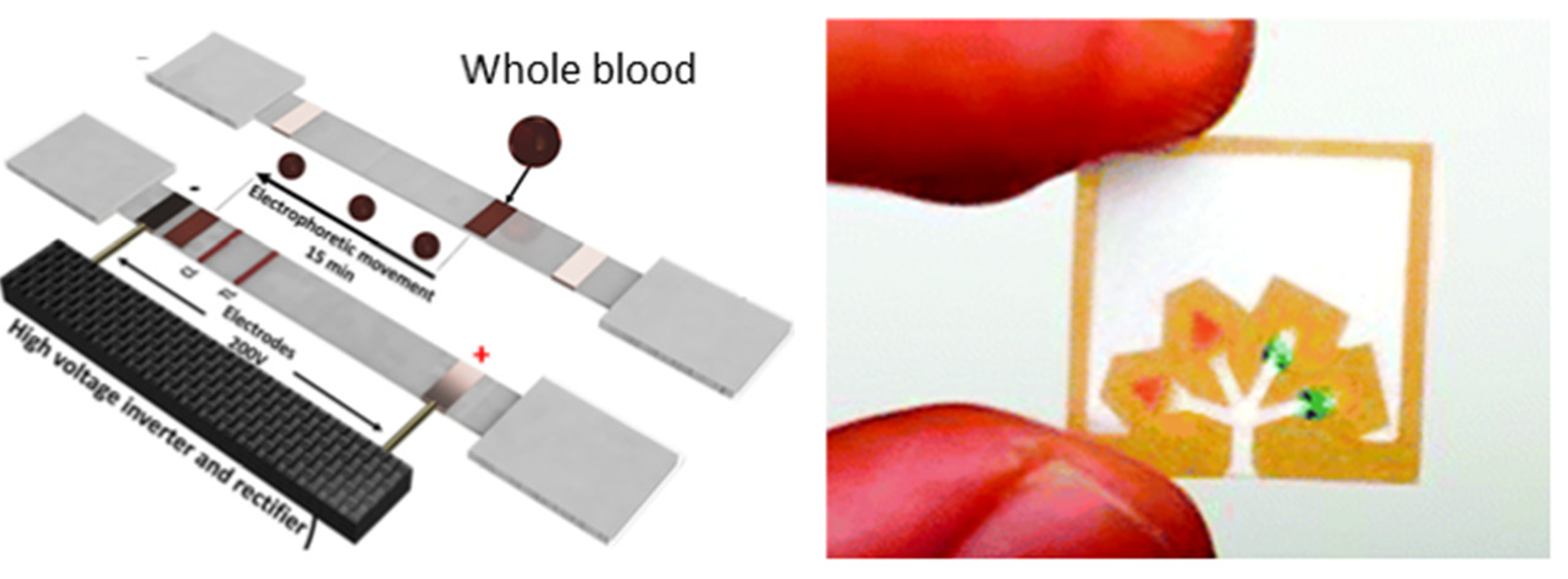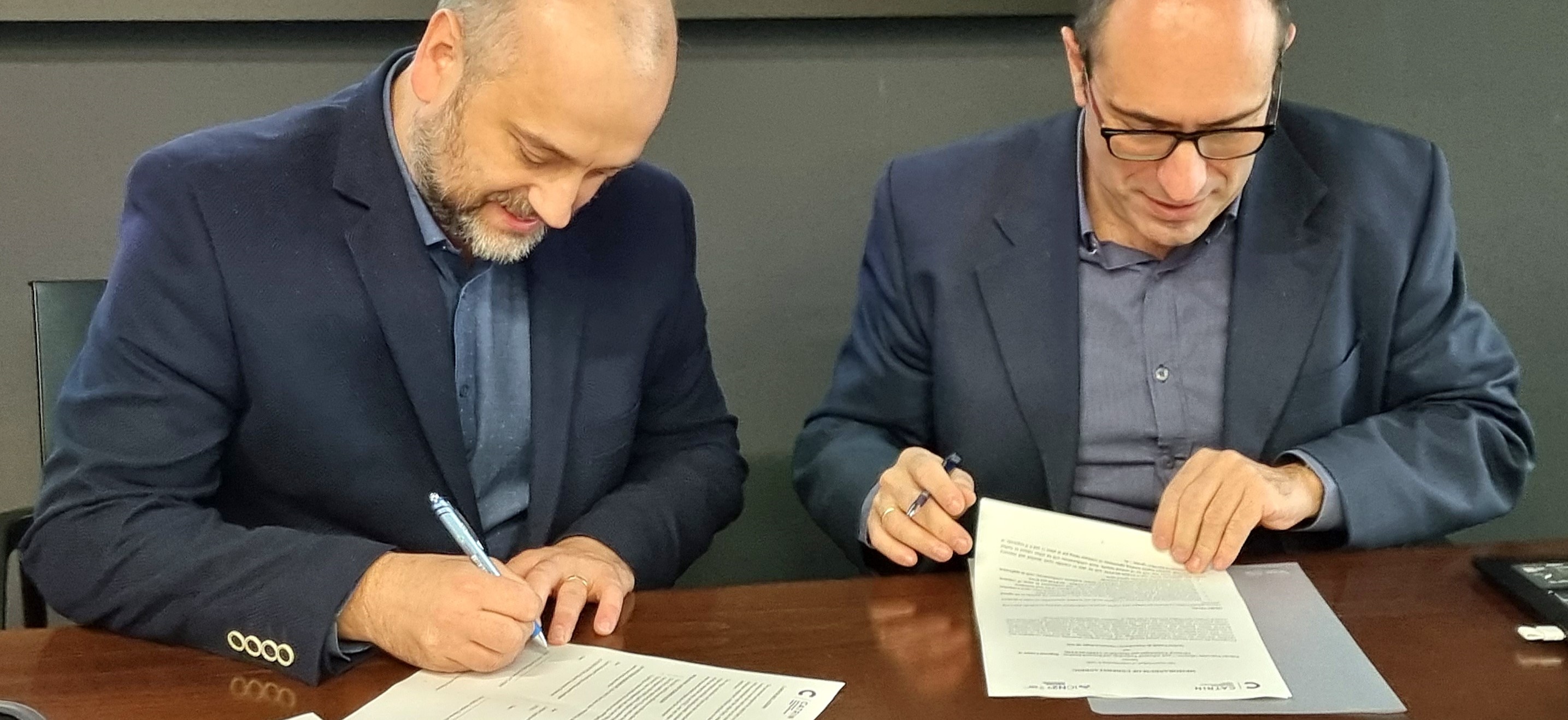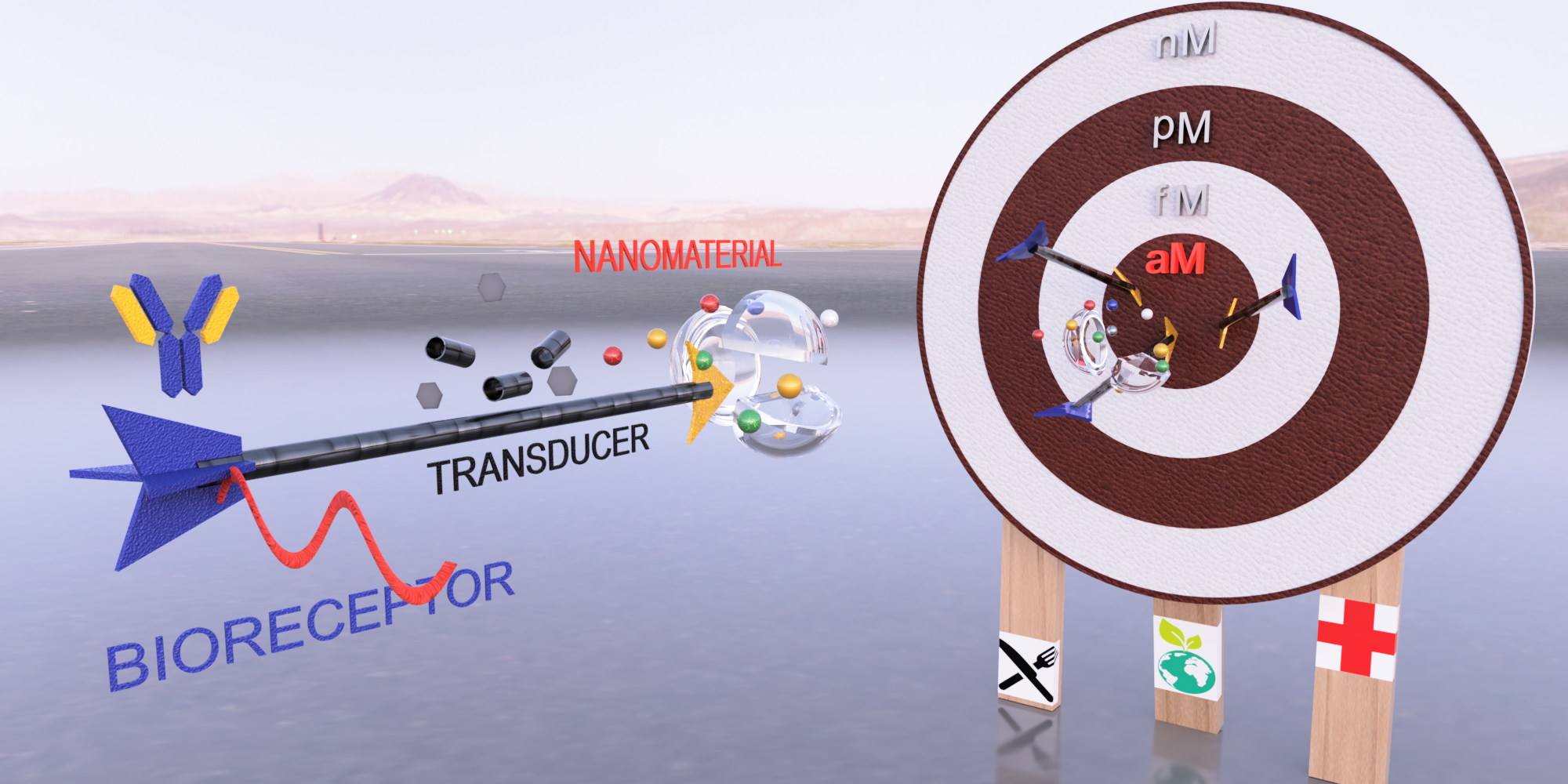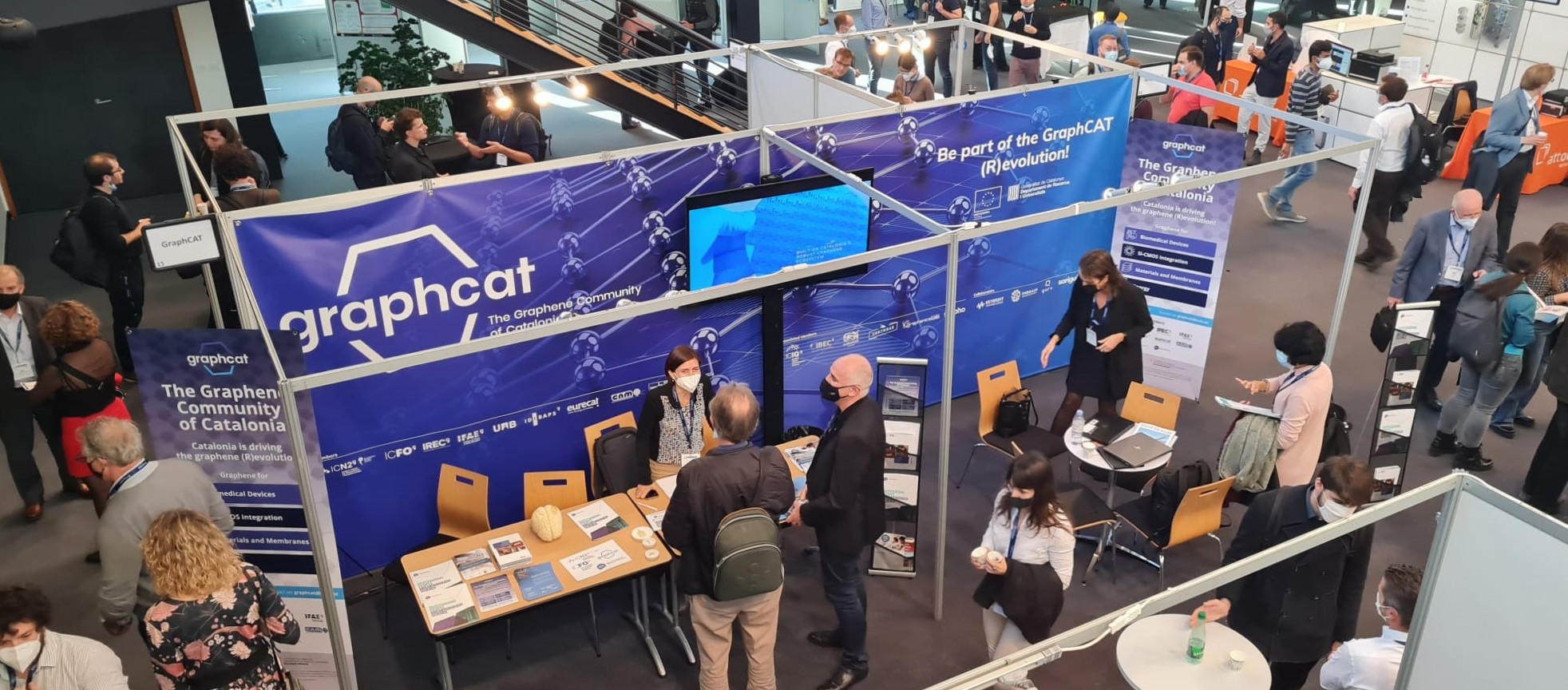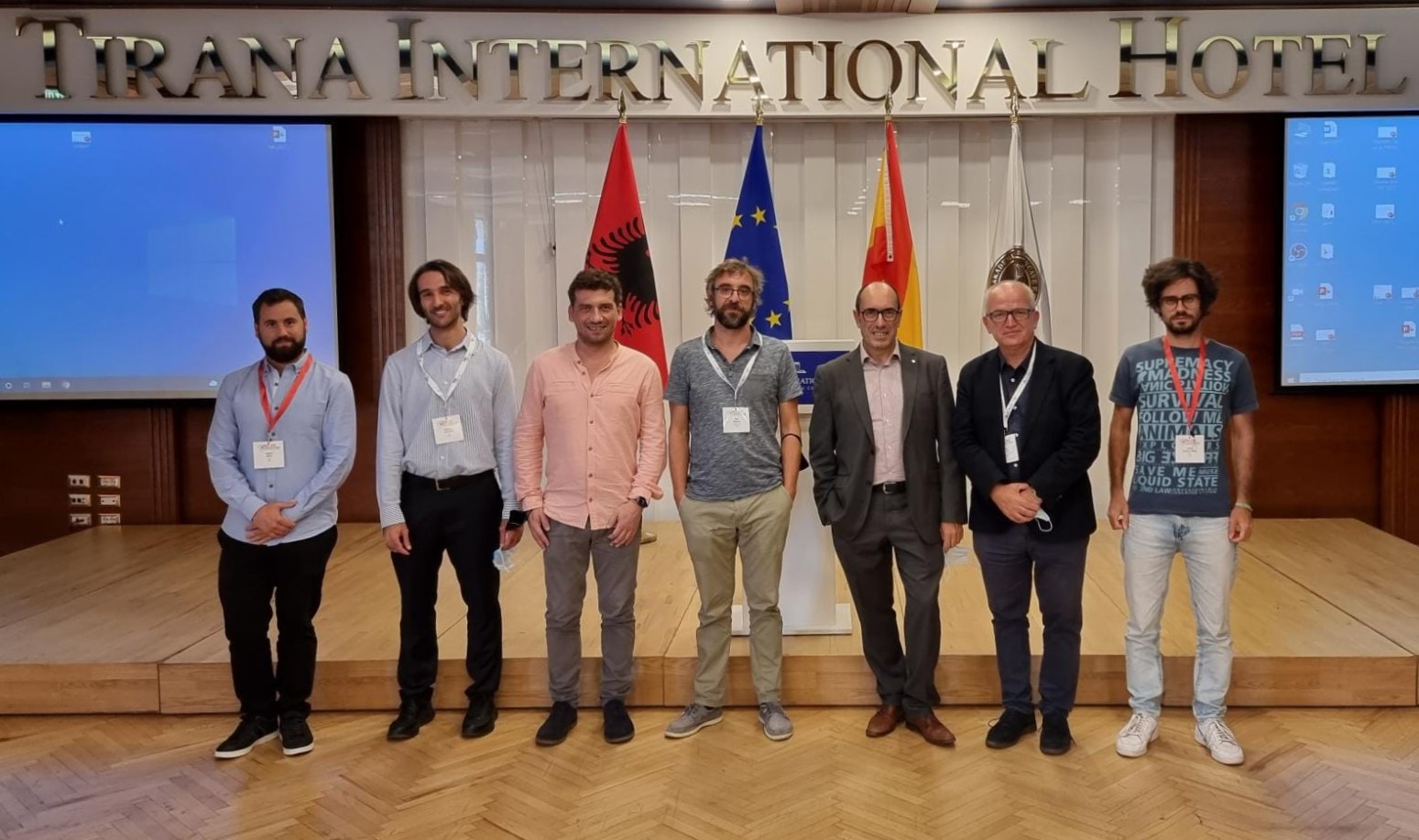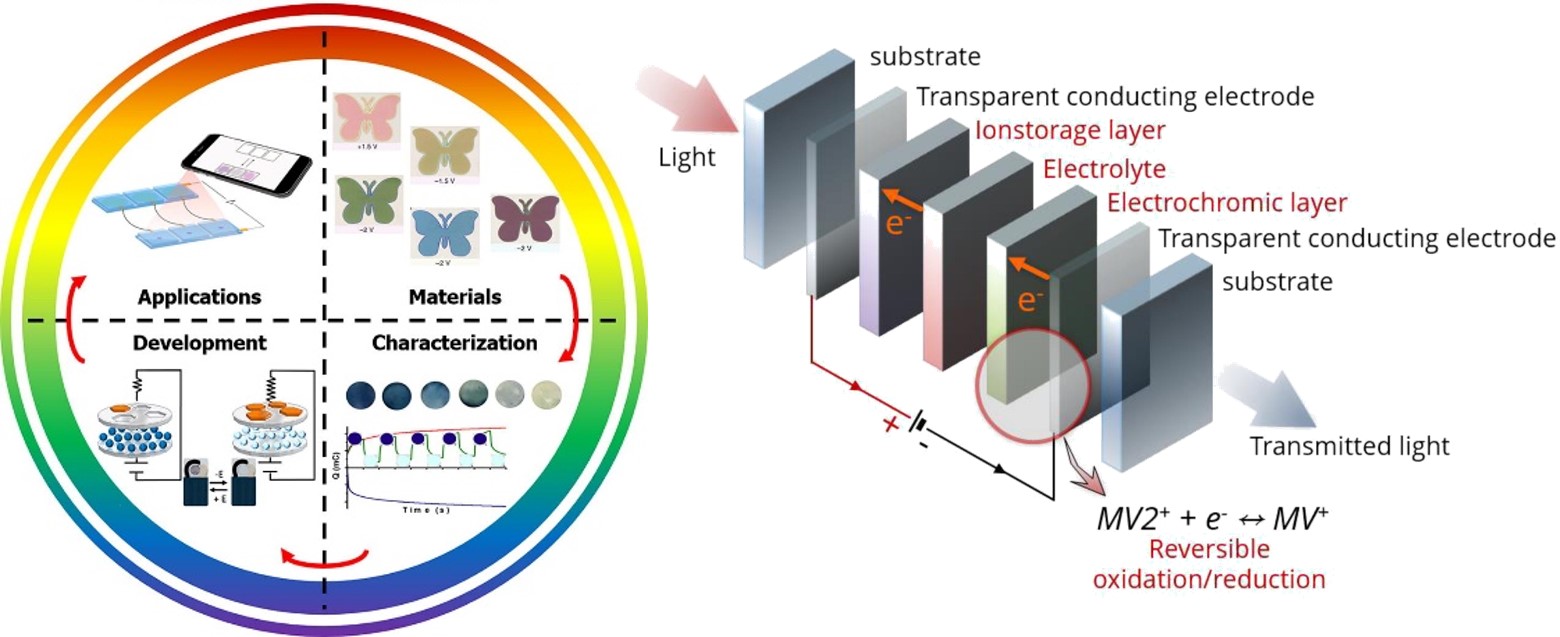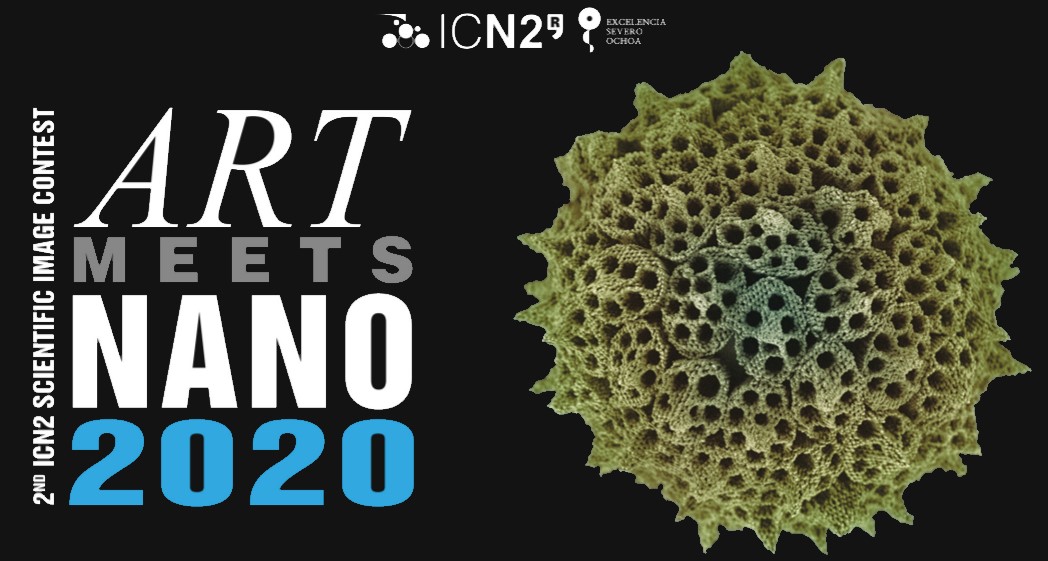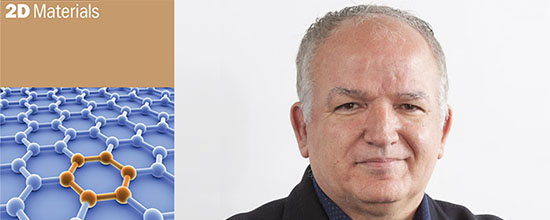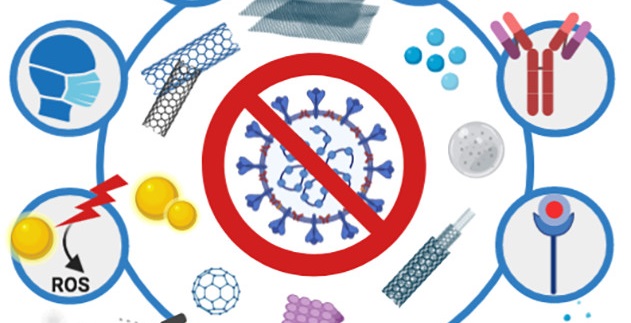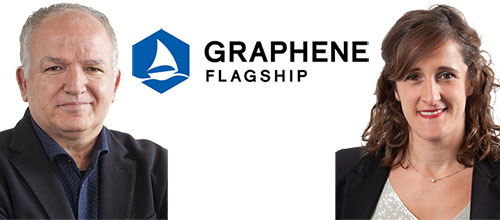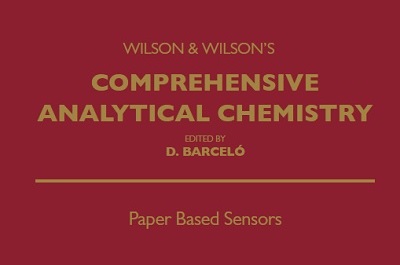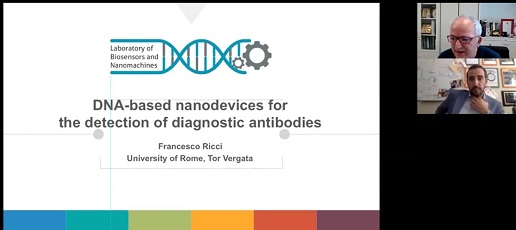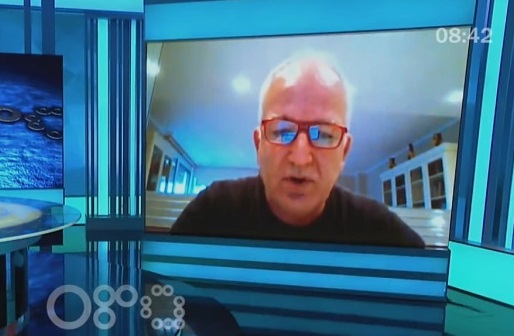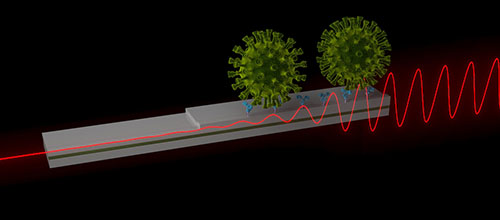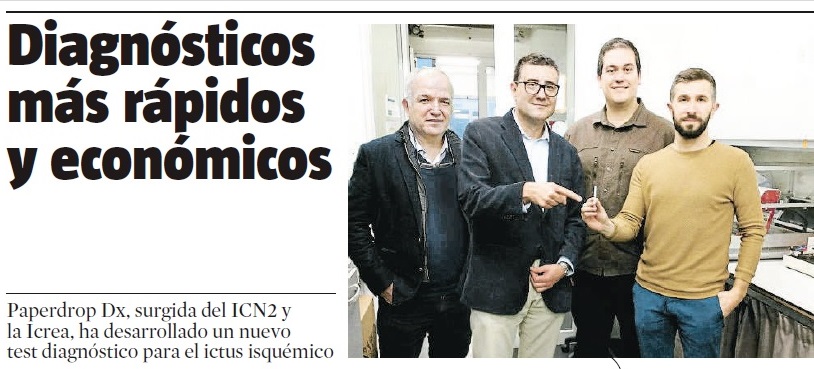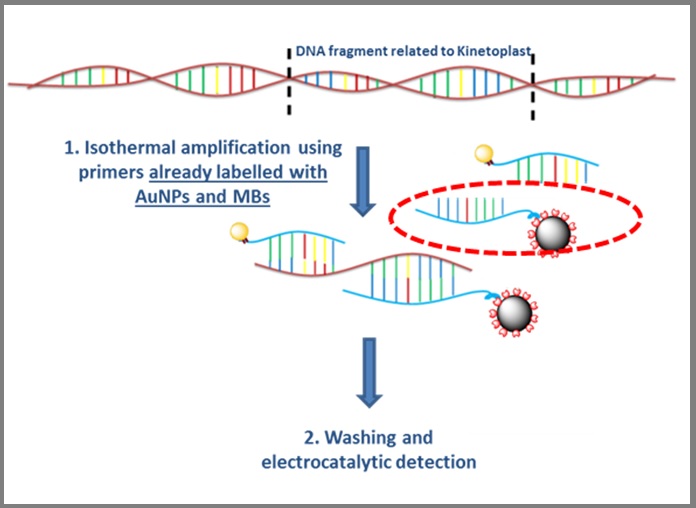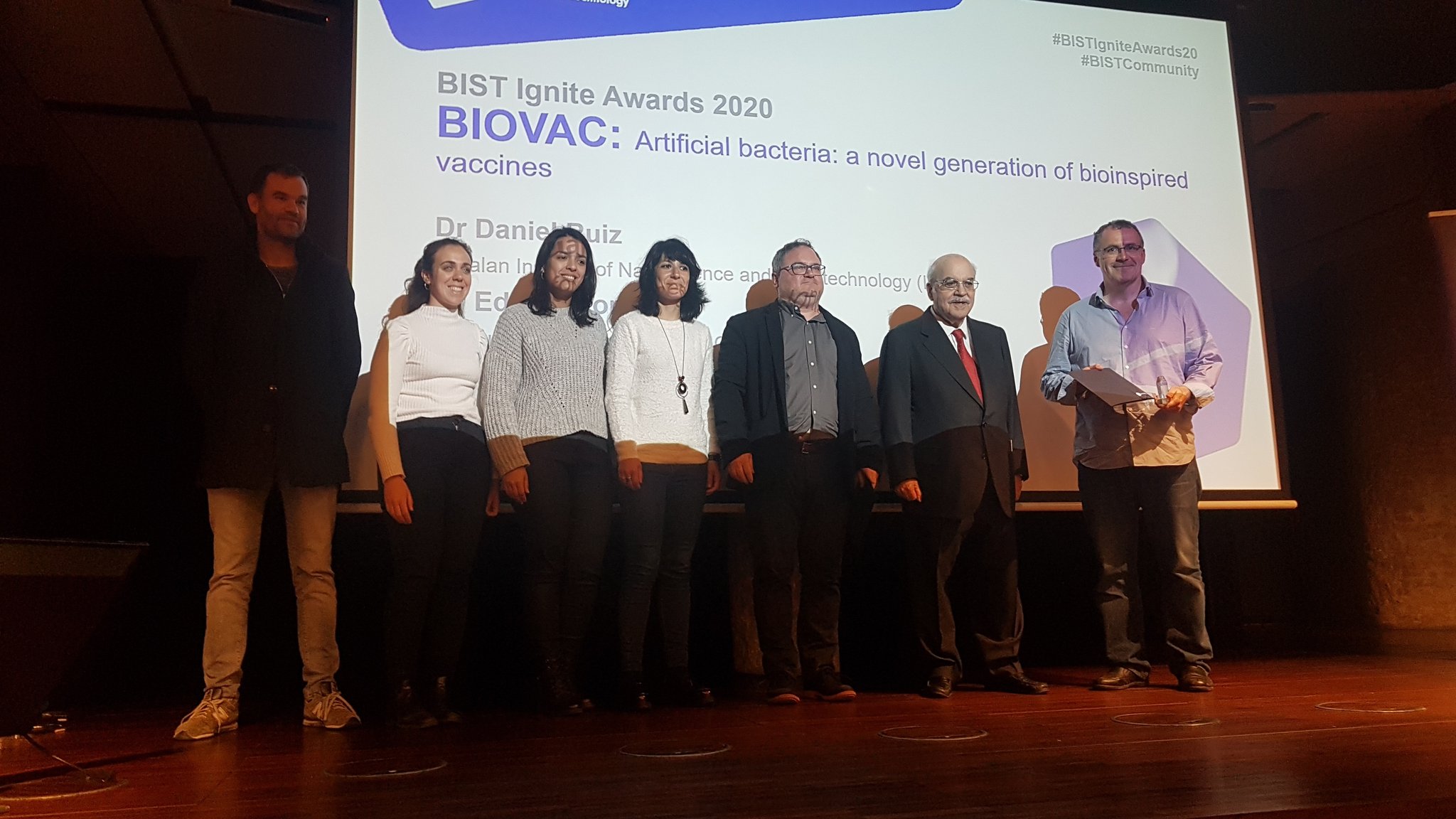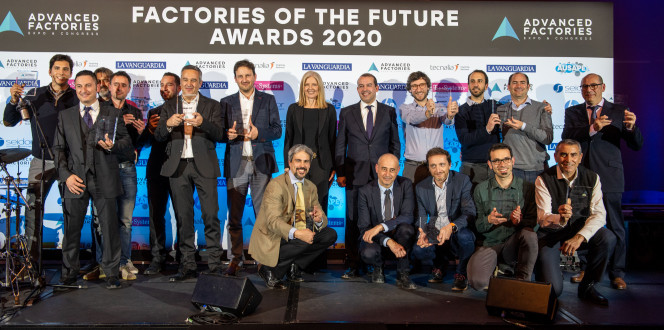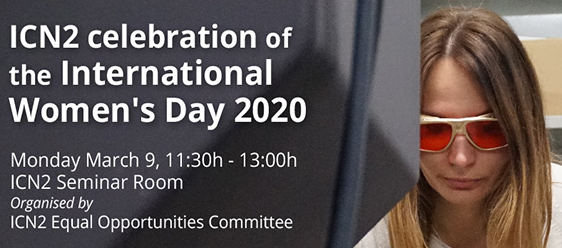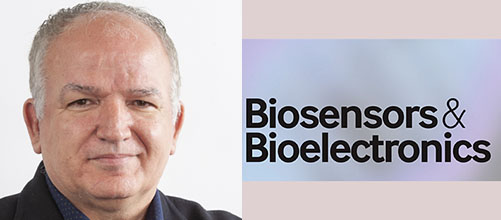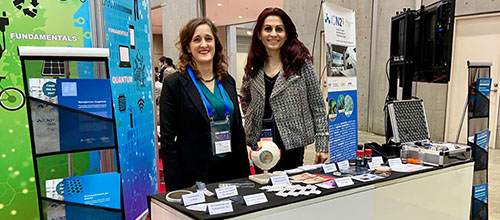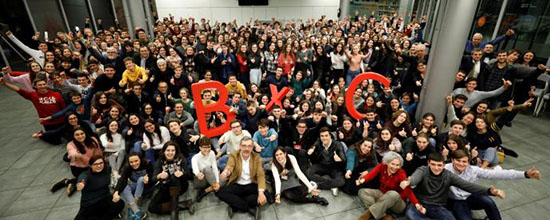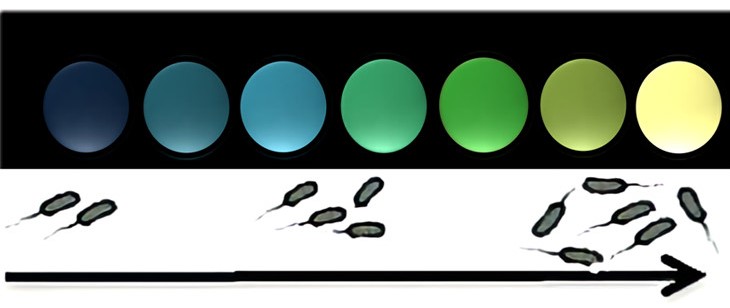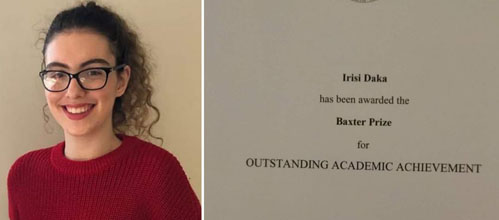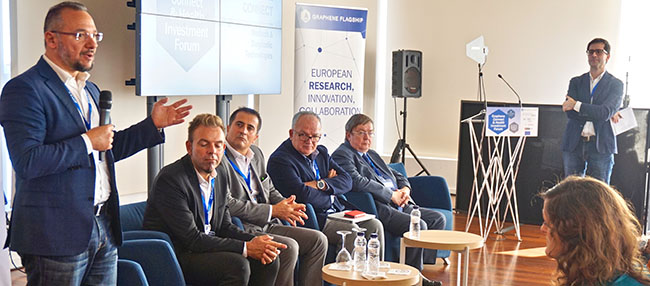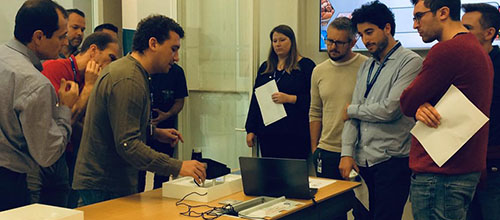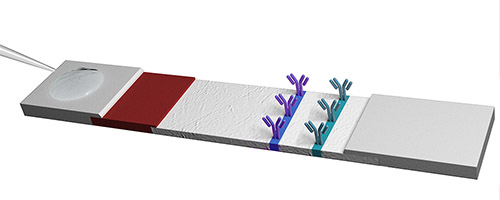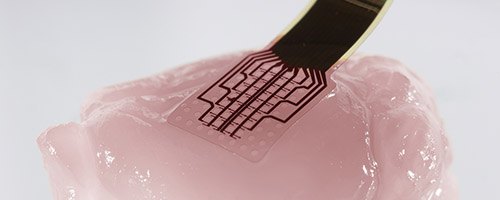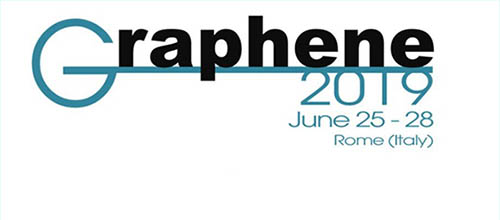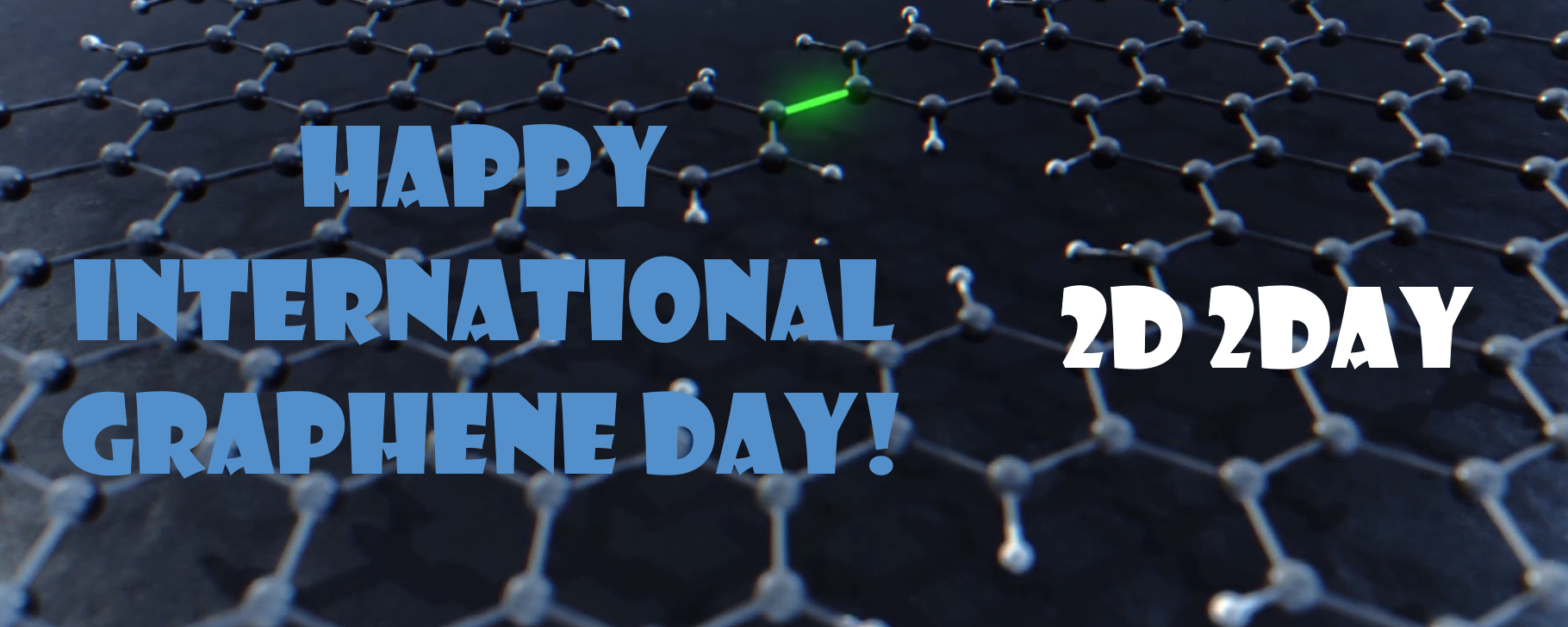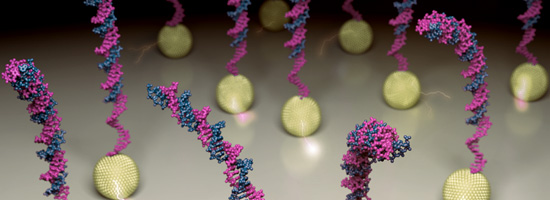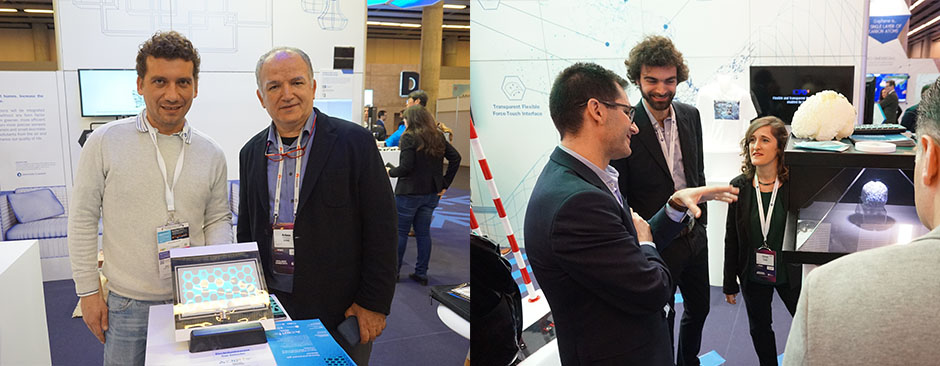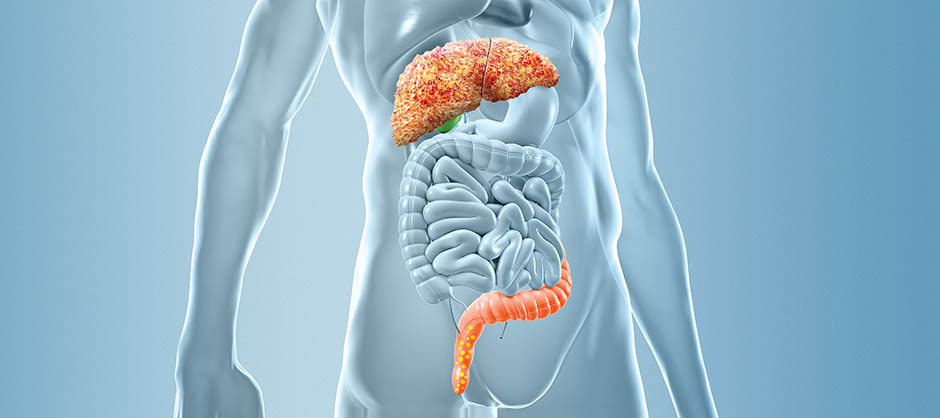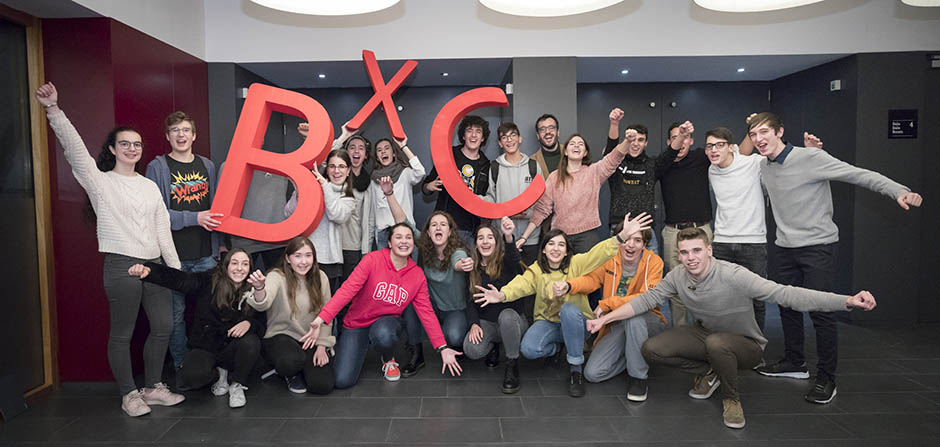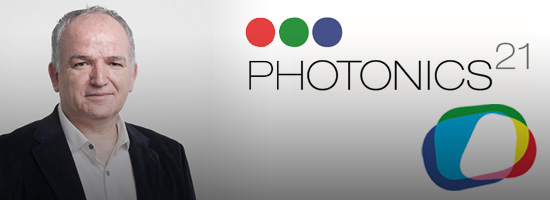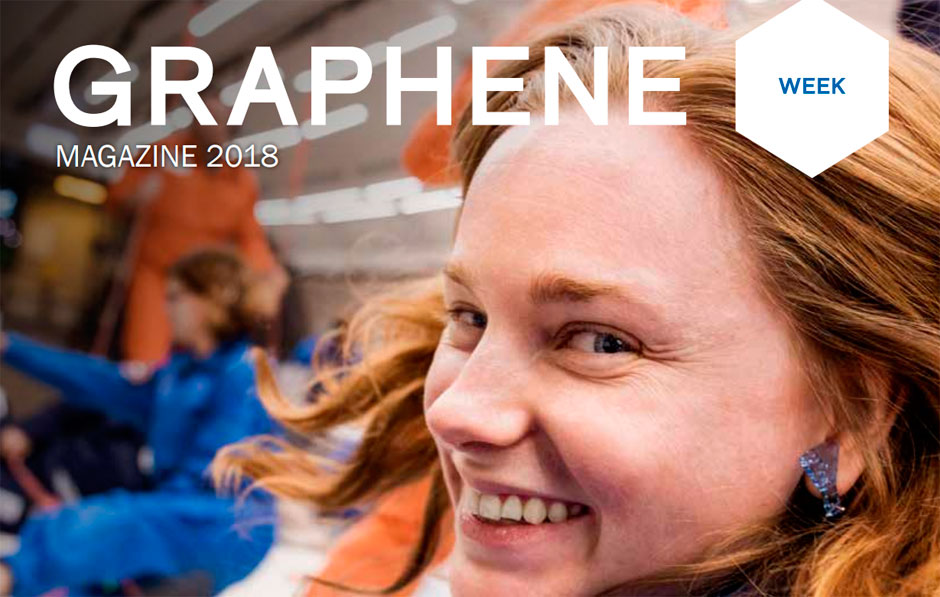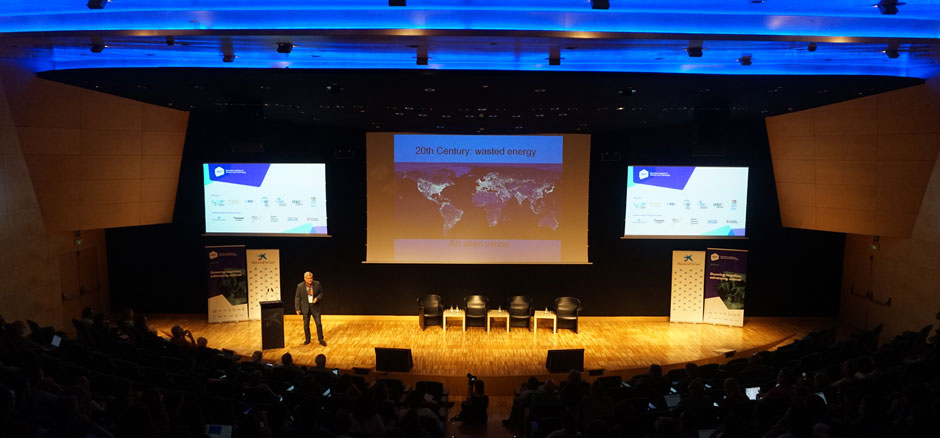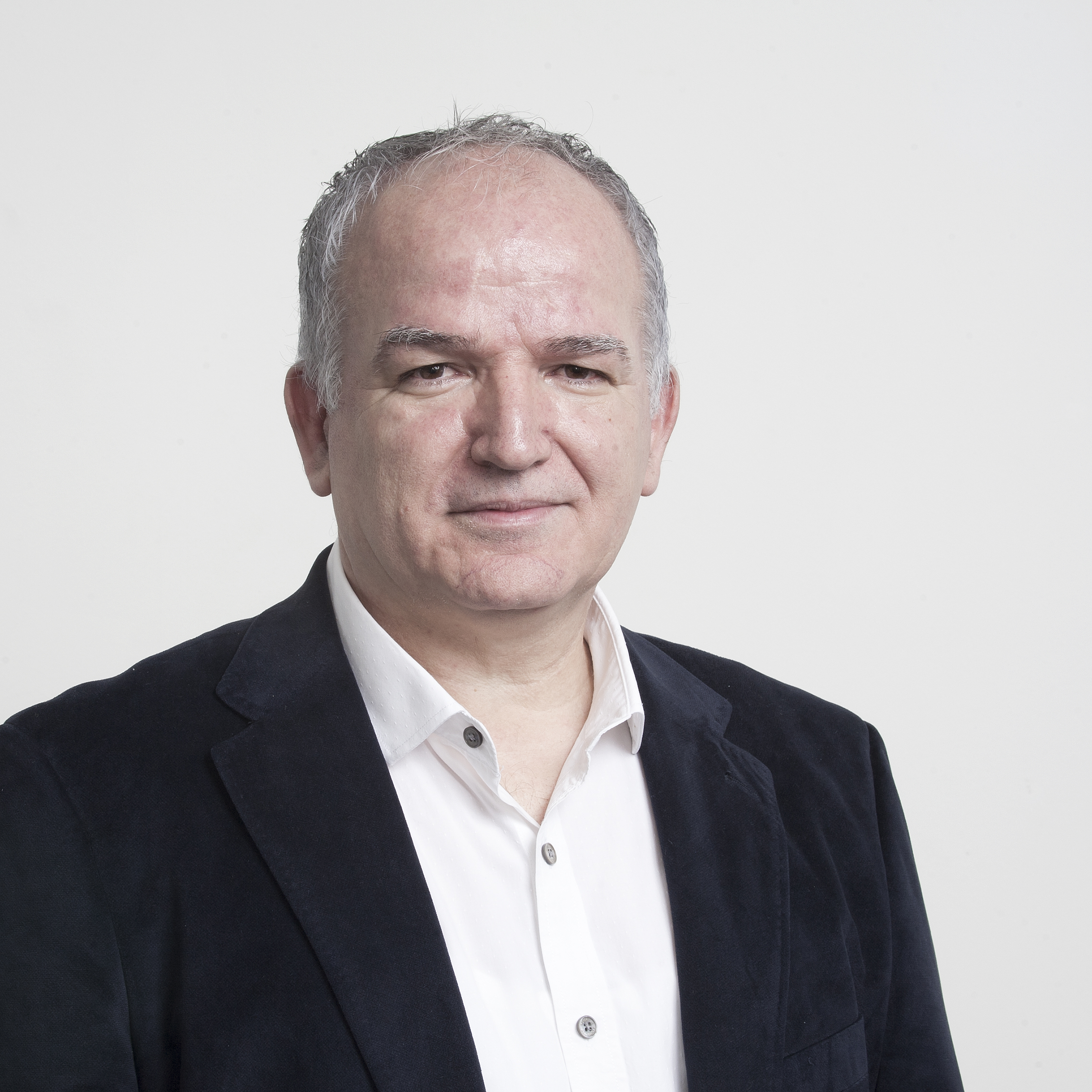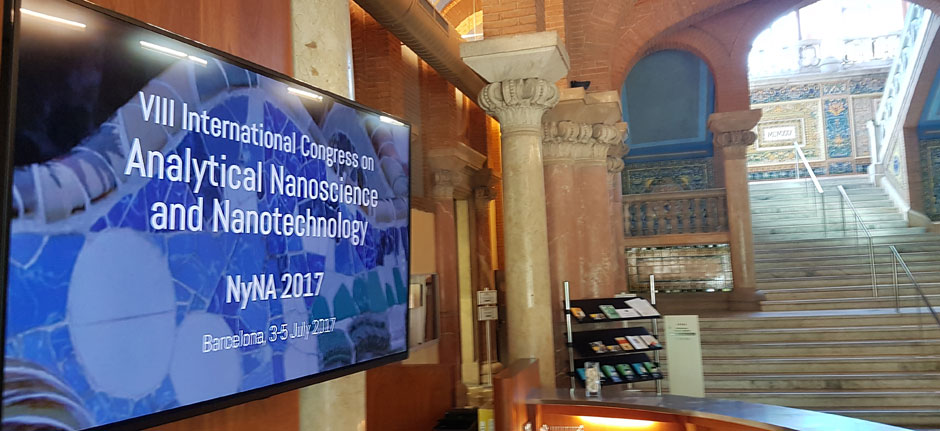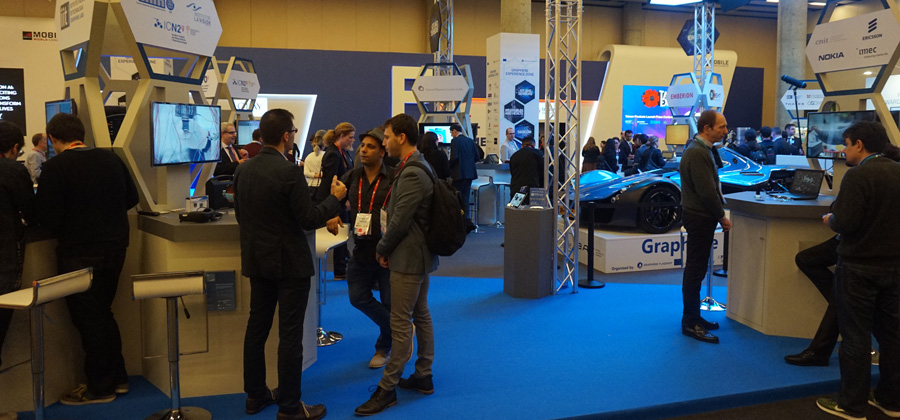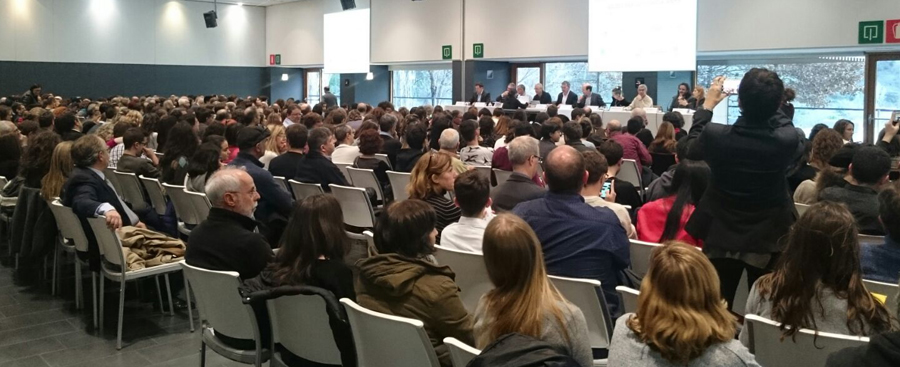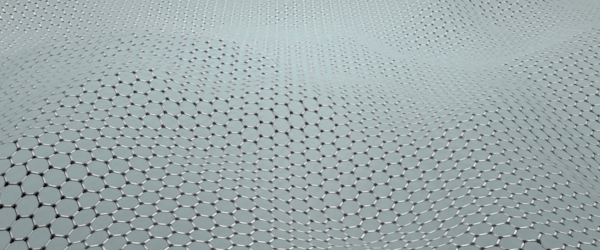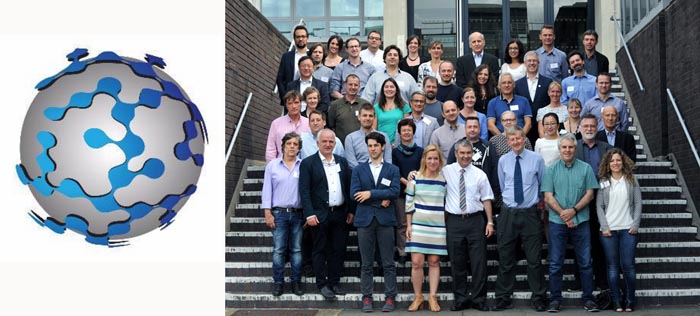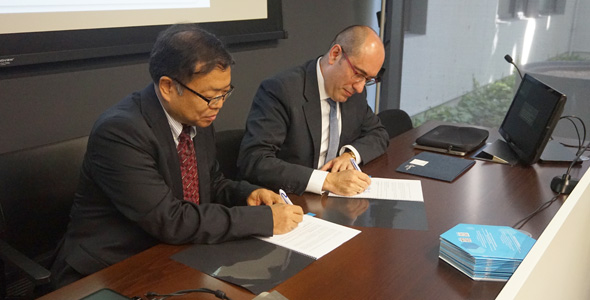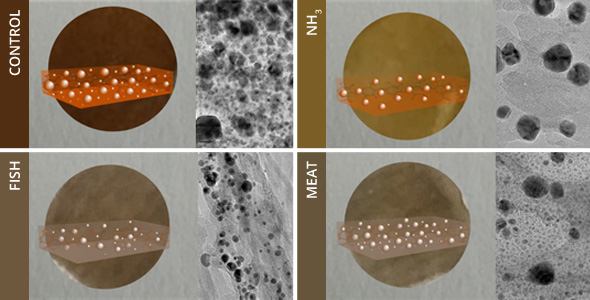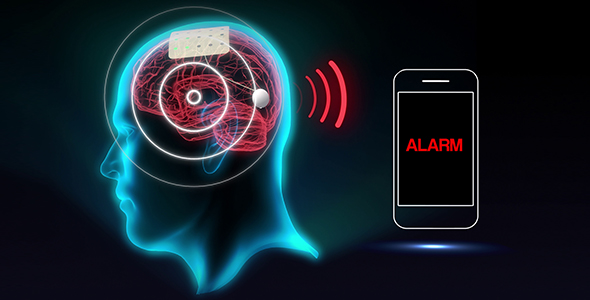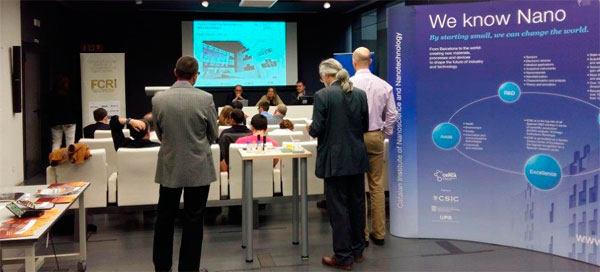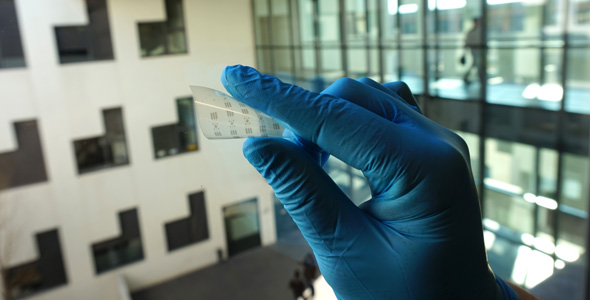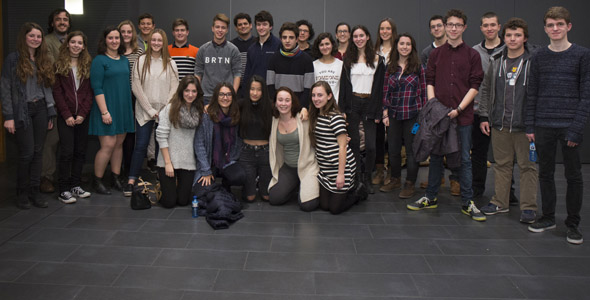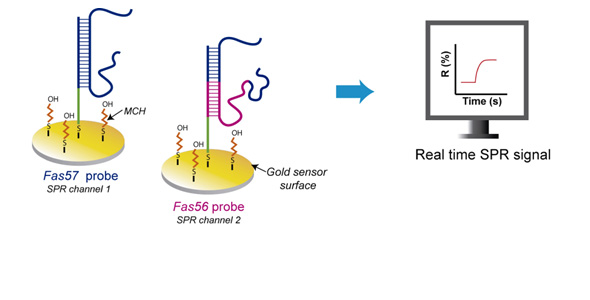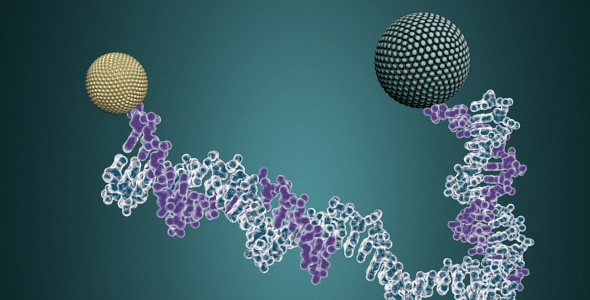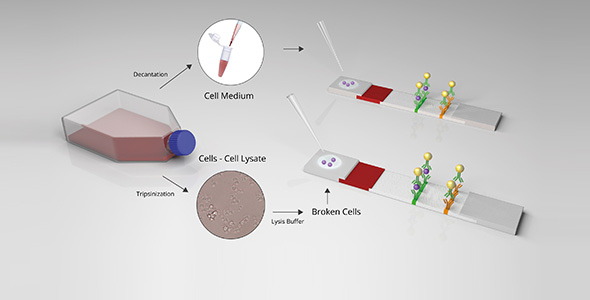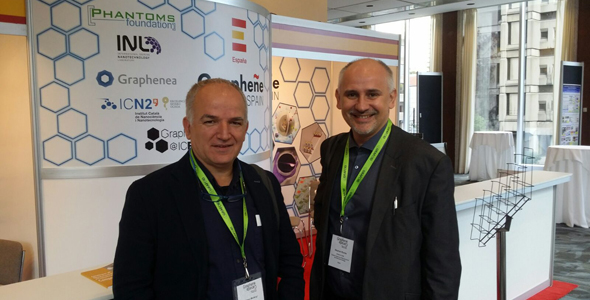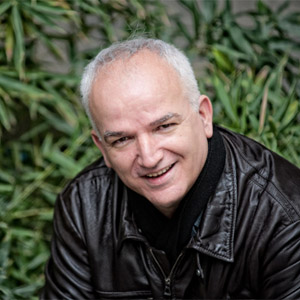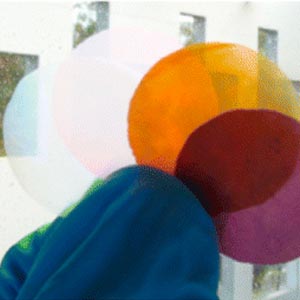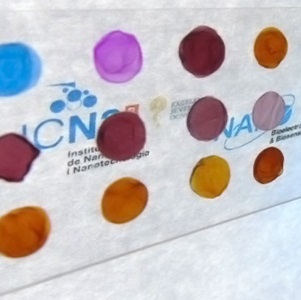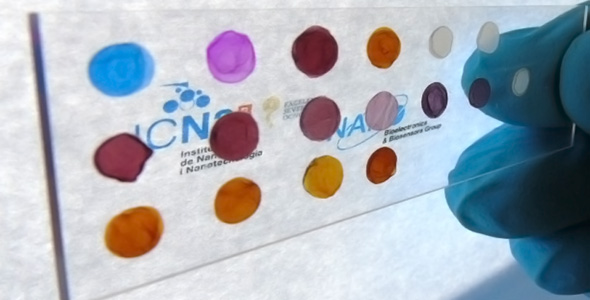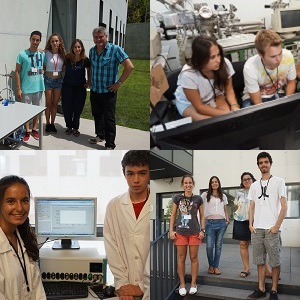News
This potential diagnostic method, financed with European funds, is a promising option for detecting biomarkers related to breast cancer in just a few minutes.
ICN2 and 12 other leading Spanish centers in nanoscale research and development comprise the SustainableNano network, a project fostering sustainability and safety within research institutions.
The meeting was organised by members of the Nanobioelectronics and Biosensors Group and took place on April 17th and 18th, 2024, at ICN2. Representatives from 11 institutions across eight European countries attended.
This event is a part of the SUSNANO project, a collaborative effort involving the University of Tirana and other partner institutions, focused on developing sustainable devices for water pollution detection.
Members of the Spanish network of electrochemical sensors and biosensors met in Sevilla to discuss new advances and challenges in their field of research.
A selection of research and review papers have been collected in this special issue to provide an overview of some of the most recent and interesting developments in the field of biosensing, with a particular emphasis on the advantages provided by new materials and nanotechnology.
The ICN2 significantly contributed to the success of the nanoBalkan Conference, co-organising numerous events and showcasing advancements in nanobiosensors technologies. ICREA Prof. Arben Merkoçi led the ICN2 delegation, with notable participation from ICN2 researchers and Nobel Laureate Kostya Novoselov, fostering a robust scientific dialogue and international collaborations.
A new edition of the 'From Science to Business' course, taught by high-profile professionals from the ESADE Business School, has just ended. Six young researchers from our institute participated and returned with a wealth of new knowledge on entrepreneurship, business planning and how to bring brilliant technological solutions to the market.
On the International Day of Climate Action, ICN2 unveils a new Media Spotlights section on its website and celebrates the relentless pursuits in nanotechnology-driven sustainable innovation by its researchers and collaborative initiatives.
Members of the ICN2 Nanobioelectronics and Biosensors Group took part in the meeting that marked the start of the scientific activities of the recently funded 2D-BioPAD project. Thanks to EUR 6 million in funding, the project will develop a compact and easy-to-use device for the early diagnosis of Alzheimer's Disease.
The world applauds as the Nobel Prize in Chemistry 2023 is awarded for the discovery of quantum dots. Within this celebration, ICN2’s own Prof. Javier Rodríguez-Viejo, a collaborator of laureate Moungi G. Bawendi at MIT, reflects on their pioneering journey.
A recent publication in 'Small’ introduces a method for manufacturing nanoelectrodes for sensing applications using readily available, low-cost materials and laboratory equipment. Performance tests have demonstrated these electrodes’ high sensitivity. This new fabrication technique, developed by researchers from the ICN2 Nanobielectronics and Biosensors Group, holds the potential to significantly influence the fields of electrochemistry and point-of-care sensing.
As the Chair of the Working Group on the European Research Area (ERA), ICN2 group leader Prof. Merkoçi will contribute to foster European research collaboration and innovation.
A study published in “Advanced Materials Technology” introducing a ratiometric fluorescent method to improve lateral flow immunoassay tests has been selected among the best works published by the journal in 2022. The authors of this research are current and former members of the ICN2 Nanobioelectronics and Biosensors Group.
This edition of the largest and most well-established event in the biosensor industry was co-chaired by Prof. Arben Merkoçi. Additionally, numerous members from his group, including doctoral students and postdoctoral researchers, made valuable contributions through oral presentations and poster sessions.
A morning event full of activities for high school students was held at the UAB on April 25 to make them discover the world of nanoscience and the numerous and diverse applications of nanotechnology. This was part of the 10alamenos9 Festival, held every year to inspire young students to pursue a career in nanoscience, as well as to disseminate research in this field to the general public.
Professor Arben Merkoçi has been recognized by research.com as the leading scientist in Electronics and Electrical Engineering and ranked eighth in Materials Science in Spain. His research focuses on nanotechnology, biosensors, and nanoparticles, with significant implications for various industries. His interdisciplinary work and recognition highlight the importance of nanotechnology and biosensors in the advancement of technology.
ICN2 showcases four of its most promising spin-off companies at the 4YFN (4 Years From Now) event held in Barcelona during MWC23. InBrain Neuroelectronics, Napptilus Battery Labs, Paperdrop Diagnostics, and Cooling Photonics presented their cutting-edge technologies and business models to potential investors and collaborators.
A study published in ACS sensor and led by members of the ICN2 Nanobioelectronics and Biosensors Group introduces a one-step, versatile technique to produce nanocomposite films (made of reduced graphene oxide embedding metal nanoparticles) to be used as sensing substrates for different applications. The simplicity of this approach can allow scaling sensor production and reducing costs.
ICN2 was present at Transfiere Málaga, a forum that connects the international R&D+I ecosystem. Claudia Nieva, Business Developer at ICN2's Business and Innovation team, presented innovative technologies from the ICN2 Groups and spin-off companies that are gaining recognition. These companies include Cooling Photonics, FutureChromes, and GraphenicaLab.
Experimental pilot brings science and technology to life for secondary school students. This activity was co-designed with the education staff of the Institut Angeleta Ferrer and researchers from several BIST centers, including ICN2.
Members of the ICN2 Nanobioelectronics and Biosensors Group and its spin-off company Paperdrop Diagnostics discuss new developments in PCR assays and antigen rapid tests aimed at combining the advantages of both techniques. This review has been published is a special issue of ‘Analytical Chemistry’ and featured on the cover.
Former PhD student at the ICN2 in the Nanobioelectronics and Biosensors Group led by Prof. Arben Merkoçi.
This year’s edition of the Graphene Week (5-8 September, Munich) not only presented new developments in research and applications of graphene and related materials, but also had a note of celebration, as the Graphene Flagship has just turned 10.
The actuality and prolific nature of the topic called for a second special issue. ICN2 group leaders Prof. Merkoçi and Prof. Lechuga signed the editorial.
The event, which was organised by group leader Prof. Laura Lechuga and counted on the participation of many members of the ICN2 community, aimed at bringing together researchers in the field of nanomedicine, clinicians from relevant hospitals, and healthcare industry experts to share results and views both on recent advances in the field and on effective procedures to transfer new technologies into clinical practice.
A review published in 'Trends in Chemistry' analyses the challenges to be faced to develop precise, specific and low-cost biosensors for point-of-care diagnostics of cancer, which would have a great impact on therapy effectiveness and cost containment, in particular in settings where access to advanced technologies and laboratories is difficult. This work, coordinated by ICREA Prof. Arben Merkoçi, was carried out by members of the ICN2 Nanobioelectronics and Biosensors groups and other international centres.
A Memorandum of Understanding was signed on 10 May 2022 by the Directors of the Czech Advanced Technology and Research Institute (CATRIN) and the Catalan Institute of Nanoscience and Nanotechnology (ICN2). The agreement establishes a programme of scientific cooperation, interchange of ideas, knowledge, and researchers.
A review in "ACS Nano" examines the phases of the development of a diagnostic device, highlighting the critical aspects and limitations that slow down the process of bringing an innovative technology from the laboratory to the marketplace. This work was conducted by members of the ICN2 Nanobioelectronics and Biosensors Group.
A project aiming at the nano-monitoring of cancer immunotherapy efficiency through a graphene electrophoretic bioassay platform, GLEBioassay, is one of the ten selected in the 12th Joint Trasnational Call for funding of the EuroNanoMed platform. The consortium will be led by Prof. Arben Merkoçi.
The projects MAKI and QEE2DUP will receive 50,000 euros each to further advance the results obtained during the first seeding phase of the BIST Ignite programme.
A paper in “Chemical Society Review” discusses the progress over the last ten years in the development of biological and chemical sensing platforms for the detection of target analytes at ultra-low abundance level (attomolar). This work was coordinated by ICN2 group leader ICREA Prof. Arben Merkoçi and Prof. V.V.R. Sai, from the Indian Institute of Technology Madras (IITM).
Former PhD student at the ICN2, in the Nanobioelectronics and Biosensors Group.
The graphene community meets again in person at the Graphene 2021 conference, this year held in Grenoble on October 26-29. The ICN2 is taking part as part of the organization, with many presentations and as one of the members of GraphCAT.
TNT2021, this year’s edition of the international conference series dedicated to new trends in nanotechnology, is being held in Tirana (Albania). The ICN2 participated in the organization of this event, which is co-chaired by group leader ICREA Prof. Arben Merkoçi, and is contributing many presentations.
Former PhD student at the ICN2, in Prof. Merkoçi’s group.
A scientific paper recently published in “Materials Today” highlights the potentialities offered by electrochromic materials for the development of portable and easy-to-use bio-sensing platforms. This work, coordinated by ICREA Prof. Arben Merkoçi, provides a comprehensive description and discussion about these materials, their properties, state-of-the art applications as biosensors and new opportunities and challenges in this field.
ART meets NANO is a contest aiming to engage the ICN2 community in the act of connecting art and science. Our goal is to encourage art as an attractive tool for communicating our nanoscience.
The ICN2 Group Leader is the guest editor of a collection of articles in 2D Materials about sensing and biosensing devices using graphene and other 2D materials.
Nanotechnology can play its part in the fight against the COVID-19 pandemic. More than a dozen scientists, including ICREA Prof. Arben Merkoçi, Group Leader at the ICN2, have analysed the role of nanotechnology in prevention, therapeutics, diagnostics and other facets needed to address this and future pandemics.
It aims to connect researchers, funders and stakeholders in order to make the best use of graphene and related materials in fields such as virology and biosensing. ICN2 Business Developer Dr Cinzia Spinato and ICREA Prof. and Group Leader Arben Merkoçi are part of the Working Group.
This is the 89th volume of the Wilson and Wilson’s Comprehensive Analytical Chemistry series, published by Elsevier.
Prof. Paolo Bondavalli, from Thales Research and Technology, offered a webinar entitled “Dynamic Spray-Gun Deposition of 1D and 2D nanomaterials: applications for sensing, EMI, energy and information storage”. The seminar, hosted by ICREA Prof. Arben Merkoçi, Group Leader of the ICN2 Nanobioelectronics and Biosensors Group, is now available on the ICN2 YouTube channel.
Prof. Francesco Ricci, from the University of Rome, offered on April 30 a webinar discussing DNA-based nanodevices. The seminar, hosted by ICREA Prof. Arben Merkoçi, Group Leader of the ICN2 Nanobioelectronics and Biosensors Group, is now available on the ICN2 YouTube channel.
The Group Leader of the ICN2 Nanobioelectronics and Biosensors Group was interviewed by Ora News.
Join this online conference about nanotech-based diagnostics in emergency situations. The event, with Phantoms Foundation and ICN2 researchers leading the organisation committee, will be held on 6 May. Register before 30 April to get an early bird discount.
Paperdrop Diagnostics is the ICN2 and ICREA spin-off devoted to the development of rapid diagnostic tests based on paper microfluidics. La Vanguardia remarks their new test for ischemic stroke, based on the evaluation of microRNA, and their efforts to produce a Covid-19 test from this technology.
The awarded projects are BIOVAC (ICN2 / IBEC), which aims to develop a new generation of vaccines against untreatable infections and multi-resistant bacteria, and BIOSPAD (ICFO / IFAE), which will develop more affordable brain diagnostic tests. ICN2 is involved in 4 of the 5 projects selected in the 2020 Ignite Programme, leading one of them (SensMOF) through Dr Leyre Gómez Navascués.
Awarded by Advanced Factories, these prizes want to foster innovation in the industrial sector. The spin-off from the ICN2 GraphenicaLab is among the 4 awarded companies, out of more than 170 candidates.
On the occasion of the International Women’s Day, on March 9 the ICN2 hosted an event to discuss about gender balance in research and present the Equal Opportunities and Diversity Management Plan II, which was launched in 2019 and will extend up to 2022.
On the occasion of the World Cancer Day, occurring on February 4 and dedicated to global awareness about cancer, we would like to highlight various research lines oriented at improving tumour diagnosis and treatment in which the ICN2 is involved.
Biosensors and Bioelectronics is one of the most influential journals devoted to biosensors. He has been selected together with two more new Co-Editors-in-Chief, Prof. Man Bock Gu (Korea University College of Life Sciences and Biotechnology) and Prof. Chenzhong Li (Florida International University Department of Biomedical Engineering).
After a whole week in Japan, the ICN2 mission led by the ICN2 Director Pablo Ordejón and Group Leaders such as ICREA Prof. Stephan Roche, ICREA Prof. Arben Merkoçi and Prof. Pedro Gómez, starts its return with many new scientific and commercial contacts. The agenda was full with the 1&2D Materials Conference, the Albania/Japan/Spain workshop involving CERCA, a visit to RIKEN and the NanoTech2020 International Nanotechnology Exhibition and Conference.
Together with CERCA and CSIC the ICN2 will have a central role at the Spanish Pavilion of the Nanotech 2020 starting tomorrow. With over 350 exhibitors, this event is a huge meeting point for industry and academic institutions. The event is sided by the 1&2D materials congress, starting today, a Japan-Albania-Spain workshop, to be held tomorrow and organized by ICREA Prof. Arben Merkoçi and Phantoms Foundation, and a visit to RIKEN headquarters.
27 High School students will interact during 16 work sessions with researchers from all the participating excellence centers offering exciting experiences that explore the biggest and the smallest scales of the universe. Coordinated from the ICN2 and the IFAE, Crazy for Physics (Bojos per la Física) also involves the UAB, the ICMAB, the ICFO, the ICE, the UB and the Alba Synchrotron.
Researchers of the ICN2 Nanobioelectronics and Biosensors group, led by ICREA Prof. Arben Merkoçi, have developed a novel sensor to detect bacterial contamination in water or food samples that combines the high sensitivity of electrochemical sensors with the simplicity of a visual read-out.
She is a Fellowship Degree Student coming from Queen Mary University of London. She is now carrying out her research at the Nanobioelectronics and Biosensors Group, led by ICREA Prof. Arben Merkoçi.
A Graphene Connect event dedicated to MedTech and Diagnostic Technologies has been held today, 6 November 2019, in Barcelona. This meeting aimed to foster partnership and collaborations between different stakeholders working on graphene technologies and medical devices. In the evening, a Graphene for Health Investment Forum took place, in which some entrepreneurs looking for partners and investors pitched their projects.
The IFAE and the ICN2 have coordinated the fourth edition of the Crazy for Physics oprogramme promoted by the Fundació Catalunya La Pedrera. A selected group of highly skilled undergraduate students have enjoyed a series of experiences at excellence research centers.
Dr Ruslan Álvarez, from the ICN2 Nanobioelectronics and Biosensors Group, and Dr Cinzia Spinato, from the ICN2 Business and Innovation Office, are participating in the Marketplace being held at Modena by Tetra Pak and the Graphene Flagship. They are presenting an intuitive, eco-friendly, portable sensing system to screen for different compounds found in food and environmental samples.
Scientists from the ICN2 Nanobioelectronics and Biosensors Group led by ICREA Prof. Arben Merkoçi have carried out a research to enhance the sensitivity of lateral flow tests. They have proposed to include cellulose nanofibers in the test area, which has produced an average increase of 36.6 % of the colorimetric signal on positive tests. The proposed modification can be easily applied to any kind of lateral flow strip, enabling its use in point-of-care applications.
Save the date: The Graphene Connect is coming to Barcelona next 6 November. It will be focused on MedTech and Diagnostic Technologies. It is co-organised by the Graphene Flagship, the ICN2 and the Medical Association of Barcelona to facilitate a direct interaction with key players and investors. The ICN2 is curating the event through its Business and Innovation Department.
Sponsored by Fundació Catalunya La Pedrera, the programme aims to foster scientific vocations in young students. The students have enjoyed the experience of being a researcher by interacting with the Nanobioelectronics and Biosensors Group and the Novel Energy-Oriented Materials Group. Two students winning the Biology Olympiad also joined us during the summer for an immersive research experience.
Starting this morning in Rome, this edition of the Graphene Conference series (June 25-28) will bring together experts on graphene and 2D materials from around Europe, as well as companies interested in exploiting new promising technologies in this field. The ICN2 has a leading role in creating new graphene-based scientific and industrial opportunities. Visit the BIST booth we share with our colleagues from ICFO and IFAE!
At ICN2 today, June 6, we are celebrating the first edition of the International Graphene Day.
The proposed nanobiosensor developed by ICN2 Nanobioelectronics and Biosensors Group led by ICREA Prof. Arben Merkoçi and Vetgenomics takes advantage of the high sensitivity achieved when using gold nanoparticles in the sensing surface. The sensor integrates DNA amplification and detection, which is of high interest for human, veterinarian and plant diagnostics. The results have been published in Analytical Chemistry.
The two major events in Barcelona this week are the Mobile World Congress and the Youth Mobile. Both events organised by GSMA include technologies and outreach activities coming straight from the nanoscale. Other parallel events also feature ICN2 researchers.
22 European institutions join forces to tackle end-stage liver disease and liver failure with personalised microbiome-based treatment strategies. ICN2 is a relevant technological partner of the project taking care of the development of cutting edge nanobiosensors coupled with smartphones for the disease diagnostic.
25 High School students will interact during 16 work sessions with researchers from all the participating excellence centers offering exciting experiences that explore the biggest and the smallest scales of the universe. Coordinated from the ICN2 and the IFAE, Crazy for Physics (Bojos per la Física) also involves the UAB, the ICMAB, the ICFO and the Alba Synchrotron.
The second such overview by Prof. Eden Morales-Narváez and ICREA Prof. Arben Merkoçi for Advanced Materials, this update presents the new challenges and opportunities facing researchers in this exciting field.
The 3rd edition of the Crazy for Physics programme, funded by the Fundació Catalunya / La Pedrera and coordinated by the ICN2 and IFAE, ended at Món Natura Pirineus with a weekend devoted to science and the future perspectives of the participants. Some 25 outstanding high school students enjoyed a year of theoretical and practical experiences at some of the best Catalan research centres.
This ICN2 group leader was recently elected member of the Board of Stakeholders of the European Technology Platform, Photonics21.
ICN2 researchers have applied their expertise in paper-based sensor systems to develop an inexpensive, disposable biosensor able to detect uranium in situ. Published in Scientific Reports.
Graphene Week is the Graphene Flagship International Conference. It kicked off on 10 September in San Sebastian. The program includes some ICN2 researchers and their innovations are being exhibited at the Flagship’s booth.
BIST Director General says modernising research facilities and providing training to boost the social impact of science are the top priorities of the Barcelona Institute of Science and Technology. The event, held at CosmoCaixa, offers an overview about several transversal research issues being tackled by the BIST institutions.
Daniel Quesada-González and group leader ICREA Prof. Arben Merkoçi are the authors of this comprehensive and accessible review of nanomaterials for point-of-care diagnostics. Published in Chemical Society Reviews, it runs through the pros and cons of their application in different device types.
Researchers of the ICN2 Nanobioelectronics and Biosensors Group led by Prof. Arben Merkoçi have devised a simple manufacturing method for versatile graphene oxide-based micromotors. Requiring no specialist equipment, it can be used to produce a range of micromotors that can be further tuned for different purposes. Luis Baptista-Pires explains the process in the paper published in Small.
Project FLEXOFABRIC has studied the viability of PVDF fabrics for flexoelectric smart textiles. A flexoelectric material is one that generates electricity when bent. Polivinilidene di-fluoride (PVDF) is a well-known flexoelectric and piezoelectric polymer; films of this material have been reported to have large piezoelectric and flexoelectric coefficients and therefore a large capacity to generate electricity under mechanical stress. Our purpose was to see whether such good electromechanical properties could be transferred to a textile form for smart wearables.
The detection of drug-induced injuries can be carried out using a simple paper sensor and a drop of blood. The company Paperdrop Diagnostics S.L. will develop a low-cost and easy-to-use tool for this purpose. Promoted by ICREA Prof. Arben Merkoçi, leader of the ICN2 Nanobioelectrics and Biosensors Group and innovation expert Dr. Marc Gallegos, Paperdrop Diagnostics S.L. is the latest example of successful transfer of ICN2 technology.
A new paper signed by ICREA professor Arben Merkoçi and published in IOPScience's 2D Materials is featured in Nanotechweb. It outlines an inexpensive process for the synthesis of biocompatible 2D materials for use in the biomedical context.
The VIII International Congress on Analytical Nanoscience and Nanotechnology (NyNA 2017) was held in Barcelona on 3-5 July. Its Organising Committee was formed by the ICN2 Group Leaders ICREA Prof. Arben Merkoçi, Prof. Laura Lechuga and ICREA Prof. Jordi Arbiol. The event was a unique opportunity to create enduring links and discuss the advancements in areas such as diagnostics, safety and security, environmental monitoring and other industrial applications.
Researchers from the Nanobioelectronics and Biosensors Group at the ICN2 have published details of their new biosensor system in Scientific Reports by Nature. Paper embedded with a graphene structure is used together with a 3D-printable mini “darkroom” and smartphone technology to screen for different compounds found in food and environmental samples. The innovative system provides a low-cost portable alternative to lab testing for qualitative and quantitative pollutant detection and monitoring.
For the second consecutive year, the Mobile World Congress (MWC) is offering a selection of the most promising applications based on such 2D materials as graphene in the Graphene Flagship’s Graphene Experience Zone. ICN2 is there to present two technologies: innovative electronic retina prostheses for patients that have lost their sight but still have a functional optic nerve and a patented sensor, fitted to a mobile phone, with oenology and pollution detection applications, the results of which can be read immediately. ICN2 and ICFO are already working together so that, after the MWC, they can once again put Barcelona at the forefront of innovation with 2D materials at the Graphene Conference 2017 (28-31 March 2017).
Mad for Science is a consolidated Program organised by Fundació Catalunya-La Pedrera and devoted to bring High School sudents closer to research. ICN2, IFAE and UAB lead the second edition of Mad for Physics. It is a great opportunity for 25 brilliant young students to have a first contact with real research. The Program offers an overview of different research lines, including the participation of researchers from ICMAB, ICFO and Alba Synchrotron.
Biosensing is growing on importance. Nanomaterials and, more specifically, graphene-based platforms have excellent properties for biosensing. In addition, flexible, abundant, low-cost and green materials, such as plastic and paper, can enhance this technology. Graphene-based biosensors will lead to breakthrough solutions for the real world, although their commercialization will imply diverse technical, production and market issues.
Biolin Scientific, an instrumentation company, offers to its customers a graphene oxide Q-sensor developed in collaboration with the ICN2 Nanobioelectronics and Biosensors Group headed by ICREA Professor Arben Merkoçi. This collaboration allows the commercialisation of a product co-developed at ICN2.
The ICN2 delegation included the Director and a nourished representation of Group leaders involved in different approaches to graphene research and applications. After a series of contacts with Chinese representations, GrapChina becomes a strategic event to develop new contacts with key players such as the China Innovation Alliance of the Graphene Industry (CGIA).
The project will design efficient, user-friendly water monitoring strategies and systems based on innovative technologies that will provide real time data for important parameters, moving towards SMART Rivers. ICN2 is one of the partners of the Project through the ICN2 Nanobioelectronics and Biosensors Group, led by ICREA Prof Arben Merkoçi.
The purpose of the alliance’s visit was to learn about graphene-related research at the Catalan Institute of Nanoscience and Nanotechnology (ICN2) and explore possibilities of collaboration among ICN2 and the CGIA Chinese Alliance.
ICN2 researchers from Nanobioelectronics and Bisoensors Group, led by ICREA Professor Arben Merkoçi in collaboration with researchers in Canada and Iran, report a novel sensing technology for the visual detection of volatile compounds in a piece of plasmonic nanopaper. Their results have been just published in Nanoscale.
The technologies presented at the Graphene Pavilion of the Mobile World Congress take advantage of the unique combination of graphene’s properties, such as high mechanical flexibility, biocompatibility, and ability to transport electricity. The Pavilion curated by ICFO - The Institute of Photonic Sciences, in collaboration with the Graphene Flaghship, includes two technologies developed by researchers from the Institut Català de Nanociència i Nanotecnologia (ICN2).
Fundació Catalana per a la Recerca i la Innovació (FCRi) organised, together with ICN2 and sponsored by Ibercaja, a visit to the ICN2 facilities. The visit included a guided tour and interaction with scientists who presented samples of technology.
The ICN2 NanoBioelectronics and Biosensors Group, led by the ICREA Research Prof Arben Merkoçi, presents a versatile, low-cost and customizable method for patterning graphene oxide onto a myriad of substrates. The patented technique, published in ACS Nano, requires neither a clean room nor organic solvents. It consists of three easy steps: printing, filtering and pressing.
Over 200 students, together with their families and teachers, participated in the launch event of Mad for Science 2016 (Bojos per la Ciència), an initiative to bring High School students closer to real research. ICN2 co-coordinates the Mad for Physics Program, together with IFAE. Àlex Argemí, ICN2 Head of Marketing and Communication, presented the initiative.
In an article published in Small, researchers from ICN2 and Vetgenomics successfully applied a new qualitative and quantitative method for the detection of a DNA sequence characteristic of Leishmania infantum kinetoplast. The results were recently highlighted by El Mundo Innovadores.
Deregulated alternative splicing patterns could be considered as a hallmark of cancer. A recent paper in Biosensors and Bioelectronics reports a simple and robust technology using a Surface Plasmon Resonance (SPR) biosensor for label-free monitoring of alternative splicing events in real-time. The work was led by the ICN2 Nanobiosensors and Bioanalytical Applications Group in collaboration with the CRG.
This news item had a broad impact in different media and websites, including Diario Médico elperiodico.com. In an article published in Small, researchers from ICN2 and Vetgenomics successfully applied a new qualitative and quantitative method for the detection of a DNA sequence characteristic of Leishmania infantum kinetoplast.
In an article published in Small, researchers successfully applied a new qualitative and quantitative method for the detection of a DNA sequence characteristic of Leishmania infantum kinetoplast, a frequent parasite in veterinary that affects humans too. The work was led from the Catalan Institute of Nanoscience and Nanotechnology (ICN2) and the Spin Off company Vetgenomics.
Parathyroid Hormone-like Hormone is a relevant protein in the biology and treatment of several malignancies. A work in Nanomedicine, headed by Nanobioelectronics & Biosensors Group led by Prof. Arben Merkoci from the Institut Catala de Nanociencia i Nanotecnologia (ICN2) and by Dr. Carmen de Torres Gomez-Pallete group from the Fundació and Hospital Sant Joan de Déu, describes for the first time the application of lateral-flow immunoassays for the detection of this protein taking advantage of paper based nanobiosensors properties.
Top industry leaders discussed recent advances in technology developments and business opportunities in graphene commercialization. ICN2 was among the sponsors of the event and had a leading role at the ICEX booth presenting the “Graphene” champions in Spain.
ICREA Prof Arben Merkoci’s team led an article recently published in ACS Nano reporting new sensing platforms based on bacterial cellulose nanopaper. RAC1, an influential Catalan Radio station, covered today those simple, low cost and easy to produce platforms in its news bulletin.
ICREA Prof Arben Merkoci’s team led an article recently published in ACS Nano reporting new sensing platforms based on bacterial cellulose nanopaper. El Mundo Innovadores presented those simple, low cost and easy to produce platforms in a detailes article.
An international team led by the ICREA Prof Arben Merkoci reported in ACS Nano new sensing platforms based on bacterial cellulose nanopaper. The Nature Nanotechnology journal selected this work in its Research Highlights section of the August issue.
The recent article about using nanopaper as an optical sensor platform published in ACS Nano has attracted the attention of the press. Some of the most relevant newspapers and radio stations of the country have covered, or will do, the research led by ICREA Prof Arben Merkoci where the potential and the outstanding properties of nanocellulose for sensing applications are highlighted.
An international team led by the ICREA Prof Arben Merkoci has just developed new sensing platforms based on bacterial cellulose nanopaper. These novel platforms are simple, low cost and easy to produce and present outstanding properties that make them ideal for optical (bio)sensing applications. The results have been reported in ACS Nano.
Eight students have developed their 2015 Joves i Ciencia Program projects at the ICN2 with the collaboration of eight of our researchers. In a two-week program, funded by the Fundació Catalunya La Pedrera, the pre-university students got in touch with real nanoscience and nanotechnology research.
Casa Convalescencia in Barcelona hosted the ICREA Workshop on Graphene Nanobiosensors on May 25th-26th, where international experts of the state-of-the-art in graphene nanobiosensors applications will meet. The integration of graphene in biosensor systems will lead to high sensitive, more selective and cost-effective devices. Prof Konstantin Novoselov, Nobel Prize in Physics in 2010, was among the participants of the meeting and will offer an ICN2 seminar in the UAB Campus on Wednesday May the 27th.
The UAB Campus hosts the First Scientific Meeting of Students organized by the Barcelona Nanotechnology Cluster – Bellaterra. Over one hundred students participate in the meeting and have the opportunity to share experience and research from different nanoscience areas.
Students of the Radboud University, from the Netherlands, visited the ICN2 during a trip around the main Spanish research centres related with Physics. They had the opportunity to visit some of the laboratories and speak with the researchers about their work at the Institute.
On April 17th, Prof Elvira Fortunato, from CENIMAT, visited the ICN2 and offered a talk about the great potential that metal oxides have in the future of electronics and to develop new and disruptive applications. The speaker was introduced by ICN2 Group Leader and ICREA Prof Arben Merkoci who remarked the highlights of her career.
Hospitals and biomedical related initiatives gathered at ICN2 to discuss about the potential of nanotechnology in the field of biomedicine, with a special emphasis on biosensors. The workshop, organised as part of the Biosensors B30 project, explored the opportunities of establishing shared biosensor projects.
This potentially scalable graphene production method has just been published in Advanced Functional Materials by the ICN2 Nanobioelectronics and Biosensors Group, led by ICREA Prof Arben Merkoci, in collaboration with the Department of Chemical Sciences from University of Naples “Federico II”, led by Prof. Paola Giardina. The method consists in the exfoliation of low cost graphite using ultrasonic waves in synergy with a surface active and self-assembling protein extracted from an edible fungus
From March 24th to 26th, ICN2 and Microbia Environnement have led a SMS training workshop on nanobiosensors for water monitoring at ICN2 facilities. SMS is a project funded by the European Commission to promote the development of novel sensing devices for seawater quality monitoring.
Within the framework of Manuel Cardona Conferences, Luigi Colombo recently came to the ICN2 to offer a talk about 2D materials growth, invited by Prof Stephan Roche. He also visited some of the laboratories of the institute and he talked to us in an exclusive interview conducted by Sebastian Grinschpun.
Researchers from the ICN2 Nanobioelectronics and Biosensors Group, led by the ICREA research Prof Arben Merkoci, have an active scientific production in paper/plastic-based nanobiosensors. Four recent works in Lab Chip, Analytical Chemistry and Nano Research summarize their recent activity in the field.
ICN2 holds a Meeting of the European Project SMS on November 27-28. The project will deliver a novel automated networked system to monitor seawater chemical and ecological status.
The Consortium, coordinated from the Universita degli Studi di Roma Tor Vergata (Italy), consists of six University and Research Institutes and four SMEs from 8 countries. SMS results will be tested in different marine areas of Europe and are expected to have a major impact on tourism, fisheries, and aquaculture
The Session gathered experts from around Europe in the areas of Biosensors, Theory, ICT and Energy. It was an opportunity to celebrate the Severo Ochoa accreditation in the context of a first-line international event.
Four ICN2 Group Leaders will introduce the main research areas of the Severo Ochoa Program related with ICT, Energy, Biosensors and Theory. Four Keynote speakers will give their point of view on each research area.
ICREA Research Prof. Arben Merkoci, Group Leader at ICN2 and this year’s Director of the Meeting, welcomed the assistants and underlined an exciting program. Prof. Salvador Alegret and CSIC Prof. Laura M. Lechuga opened the Conference which will summarize the latest achievements in the field of sensors and biosensors.
The International Graphene Innovation Conference (GrapChina, 2014) is a major event about Graphene, celebrated in Ningbo (China) from 1st to 3rd September. ICN2 will be there with three top Invited Speakers and institutional presence in the Spanish stand.
Researchers from the ICN2’s Nanobioelectronics and Biosensors Group, led by the ICREA Prof. Arben Merkoci, published in Advanced Functional Materials an important starting point for the design and fabrication of flexible, organic biosensing devices by inkjet printing.
The ICN2 Nanobioelectronics & Biosensors Group, led by ICREA Research Professor Arben Merkoci, published in Small a work showing how to use a Graphene/Silicon Heterojunction Schottky Diode as a sensitive, selective and simple tool for vapors sensing.
“Electroanalysis-Based Clinical Diagnostics” is an Electroanalysis Special Issue gathering the latest achievements in the design, fabrication and applications of electroanalysis-based devices in clinical field.
During the Interview Prof. Arben Merkoci explains how, using everyday technologies such a printer, his team is designing complex biosensors with multiple applications.
Researchers from the ICN2 Nanobioelectronics and Biosensors Group, led by ICREA Research Professor Arben Merkoci, publish an extensive review in Chemical Reviews about these ultra-small devices with an extraordinary potential.
The purpose of the alliance’s visit to ICN2 and ICFO was to learn more about graphene-related research at the institutes and explore the possibility of collaboration among ICN2, ICFO, and the alliance.
A study to be published in Small unveils the first surface-based biosensing system to be assisted by micromotors. The work was conducted by the ICN2 Nanobioelectronics and Biosensors Group, led by ICREA Prof. Dr. Arben Merkoci.
Reported in Angewandte, a novel optical biosensing system for the analysis of bacteria has been designed, fabricated, and then evaluated by ICN2 researchers.
The system consists of quantum dots–antibody microspots that are quenched by a coating of graphene oxide (GO) platelets as long as the pathogen is absent. In the presence of the pathogen, the quenching of the probes is minimum since their interaction with the coating of GO platelets is limited. This new approach exhibits a highly sensitive qualitative behaviour.
ICREA Research Professor Arben Merkoci and colleagues report a paper-based sensor for detection of cadmium (Cd2+) in water at record levels of sensitivity, in latest issue of Analytical Chemistry.
The sensor is cheap, portable and easy-to-use, making it a potentially ideal replacement for the costly, large time-consuming and complicated equipment traditionally employed for metal detection in water, and enabling water analysis in remote locations with limited resources
ICREA Research Professor Arben Merkoci and doctoral student Claudio Parolo have just published a review of paper-based nanobiosensors for diagnostics, in Chemical Society Reviews
Paper-based nanobiosensors offer great promise to meet the World Health Organisation’s ASSURED guidelines for diagnostics technologies in developing countries.
Doctoral student Marisol Espinoza, of ICN’s Nanobioelectronics & Biosensors Group, won the Best Poster prize at the 17th Transfrontier Meeting of Sensors and Biosensors.
Publishing in Chemical Reviews, ICREA and UAB professor Arben Merkoci and colleagues give an extensive overview of the state-of-the-art in nanomaterials for sensing and destroying pesticides.
Reporting in Nano Letters, ICREA Research Professor and ICN Group Leader Arben Merkoci, UAB Group Leader Dr Carme Nogues, and colleagues describe a new method to quantify circulating tumour cells.
The assay is based on tandem use of antibody-coated magnetic beads, which selectively bind to the cancer cells for subsequent magnetic isolation, and antibody-coated gold nanoparticles, to selectively bind to the cancer cells for subsequent electrochemical detection.
Prof Arben Merkoci and Eden Morales-Narvaez, of ICN’s Nanobioelectronics and Biosensors Group, review the state-of-the-art in graphene oxide (GO) for optical biosensors in Advanced Materials.
According to the authors, graphene oxide (GO) offers numerous advantages over other materials for use in optical sensing systems for biological analytes.
Prof Arben Merkoci of ICN and Prof Jörg P. Kutter of DTU co-edit Themed Issue of journal Lab on Chip, entitled “NANO-technologies and -materials for miniaturisation”
The issue, showcasing recent developments in nanotechnology for miniaturised biological diagnostics and other analytical applications, is centred on work to that will be presented at the Third International Workshop on Analytical Miniaturization and Nanotechnologies (WAM-NANO 2012), to be held in Barcelona on 11 and 12 June.
Prof Arben Merkoci, who leads ICN’s Nanobioelectronics and Biosensors Group, has just been named one of ten editors at the prestigious, high-impact journal.
ICN Group Leader Arben Merkoci, Prof Joseph Wang at UCSD, and co-workers report in ACS Nano the development and testing of “microsubmarines” that remove oil from contaminated water.
The Lilliputian cargo vehicles run on hydrogen peroxide, reach speeds of up to 26 micrometres per second and can carry up to ten times their volume in oil.
Team including ICN researchers reports in Carbon that compared to other carbon-based materials, graphene oxide absorbs a far greater fraction of photons from quantum dots by Förster resonance energy transfer (FRET).
“Simple Förster resonance energy transfer evidence for the ultrahigh quantum dot quenching efficiency by graphene oxide compared to other carbon structures” (Morales-Narvaéz E et al., Carbon, 2012, doi:10.1016/j.carbon.2012.02.081)
A new detection system for clinical analysis and biotechnological applications.
A novel nanowire based biosensor for glucose detection was recently described in Chemical Communications by researchers led by ICREA and UAB Prof. Arben Merkoci, Group Leader of the Nanobioelectronics and Biosensors Group at the Catalan Institute of Nanotechnology (ICN), in collaboration with researchers from UNT and CONICET in Argentina.
IAAM Medal 2011 awarded in recognition of Prof. Merkoci´s contributions in the fields of Nanomaterials and Nanotechnology.
The Academic Council of the International Association of Advanced Materials (IAAM) has decided to honour ICREA and UAB Prof. Arben Merkoci, Group Leader of the Nanobioelectronics and Biosensors Group at the Catalan Institute of Nanotechnology (ICN) in Barcelona, Spain, with the IAAM Medal of year 2011.
Researchers at the ICN have collaborated with a team at University of California San Diego in the development of new micromachines that effectively and selectively isolate the highly infectious Escherichia coli bacteria from complex samples.
As reported in Chemical Society Reviews, a team of scientists led by ICREA Prof. Arben Merkoci from the Catalan Institute of Nanotechnology (ICN )in collaboration with Prof. Anthony Turner from Cranfield University, UK and Linköping University and Maelle Perfézou from Cranfield University, UK have reviewed the latest nanotechnology based cancer diagnostics which are increasingly offering relevant alternatives to traditional techniques.
ICN researchers demonstrate a novel nanochannel/nanoparticle-based filtering and sensing platform for direct detection of a cancer biomarker in blood
Researchers of the Nanobioelectronics & Biosensors Group at the Catalan Institute of Nanotechnology (ICN), Barcelona have demonstrated the efficiency of a device based on nanochannels that through the use of gold nanoparticles as channel blockers can be useful for the detection of cancer biomarkers in whole blood samples.
Gemma Aragay, estudiant del Nanobioelectronics & Biosensors Group de l’ICN avaluadora dels articles dels participants al programa d’enguany
Gemma Aragay, estudiant del nanobioelectronics & Biosensors Group de l’ICN participa per segona vegada com avaluadora dels articles cientifics dels nois i noies participants al programa d’enguany.
